This website forms the ongoing archive of Deep Time Agency and is always under construction.
Deep Time Agency is an artistic research initiative that recontextualizes archaeological and historical objects in industrially-changed landscapes. By highlighting objects exposed by or related to industrial excavations, we seek to develop a sense of belonging in the disrupted landscapes themselves and in the Anthropocene.




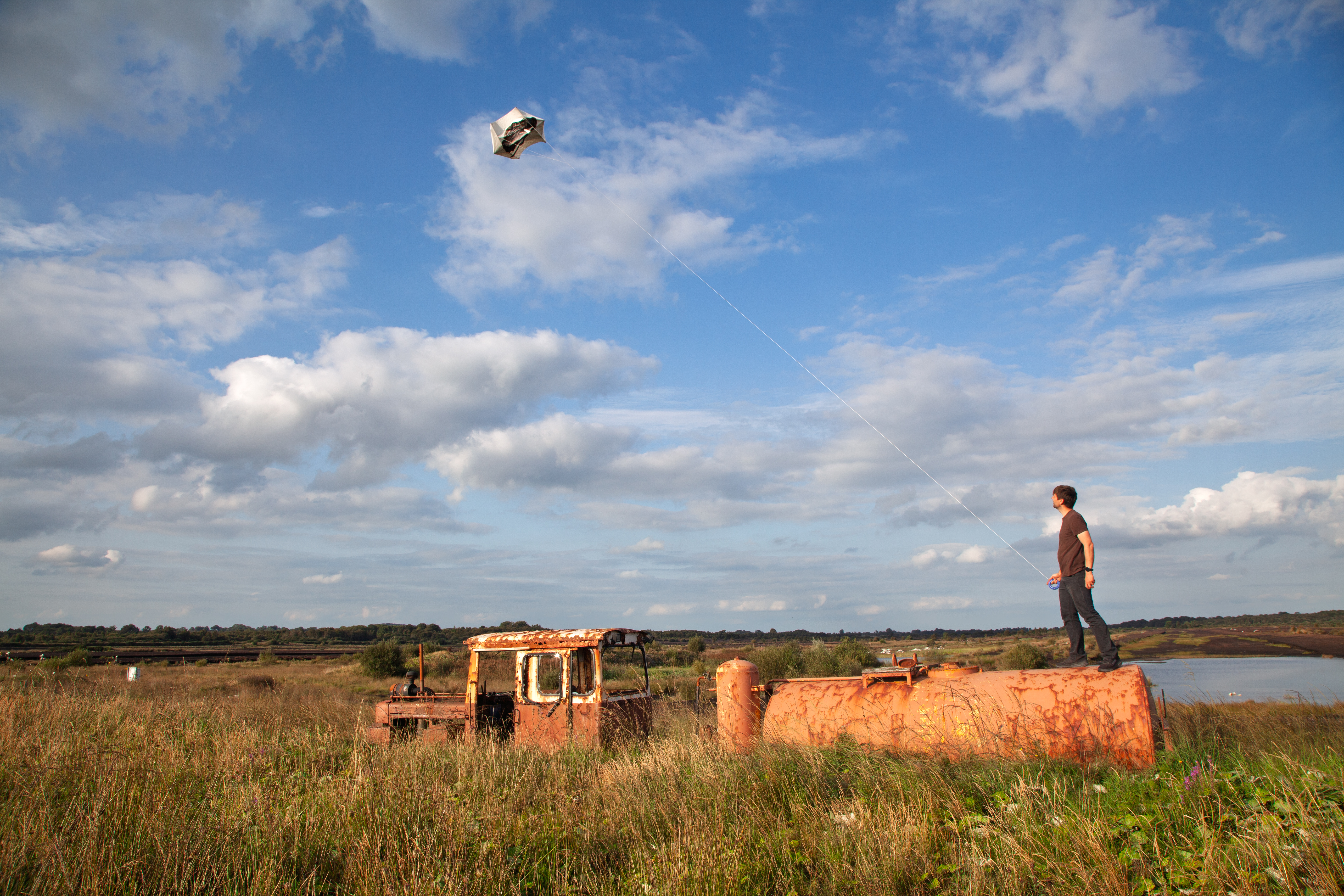
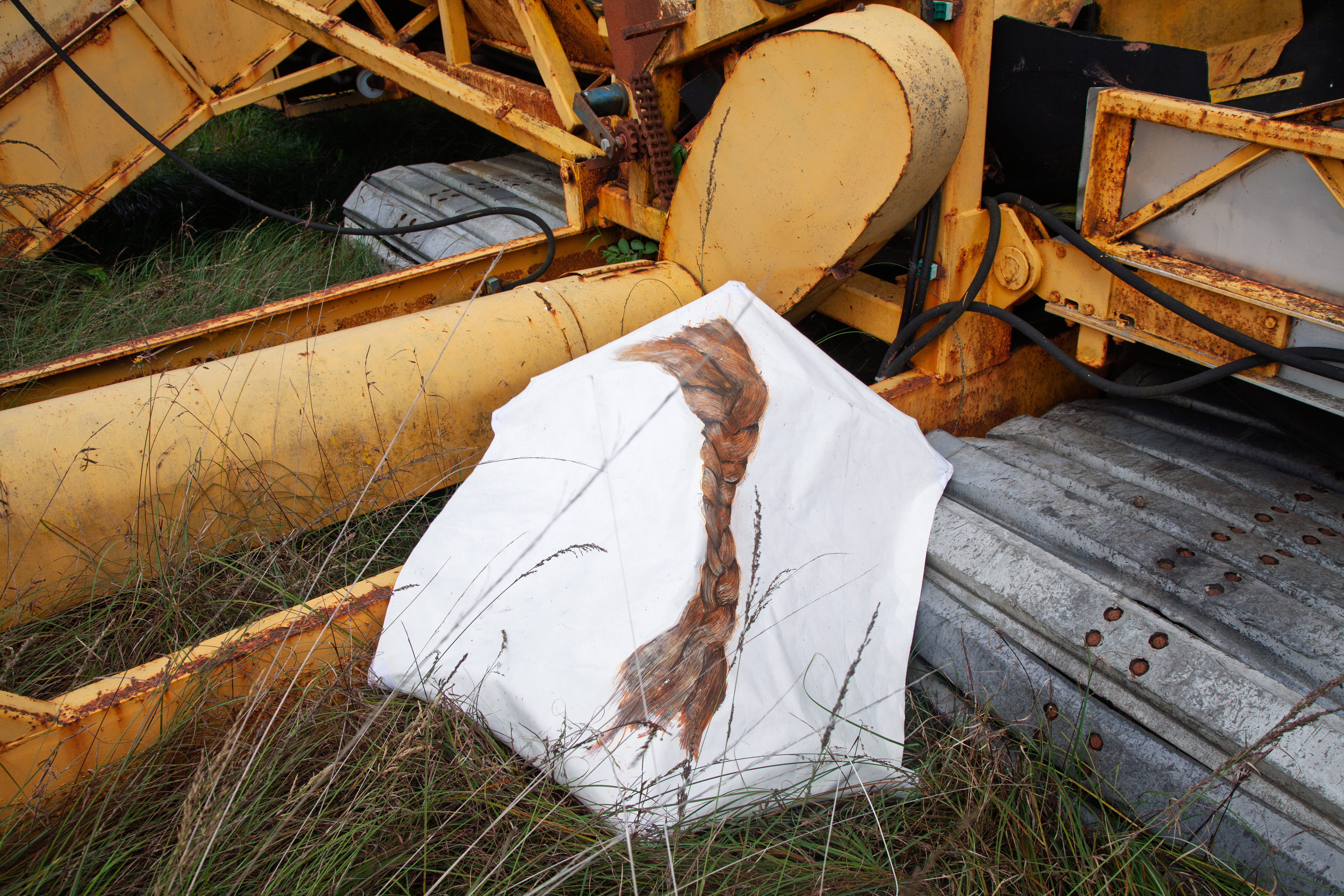

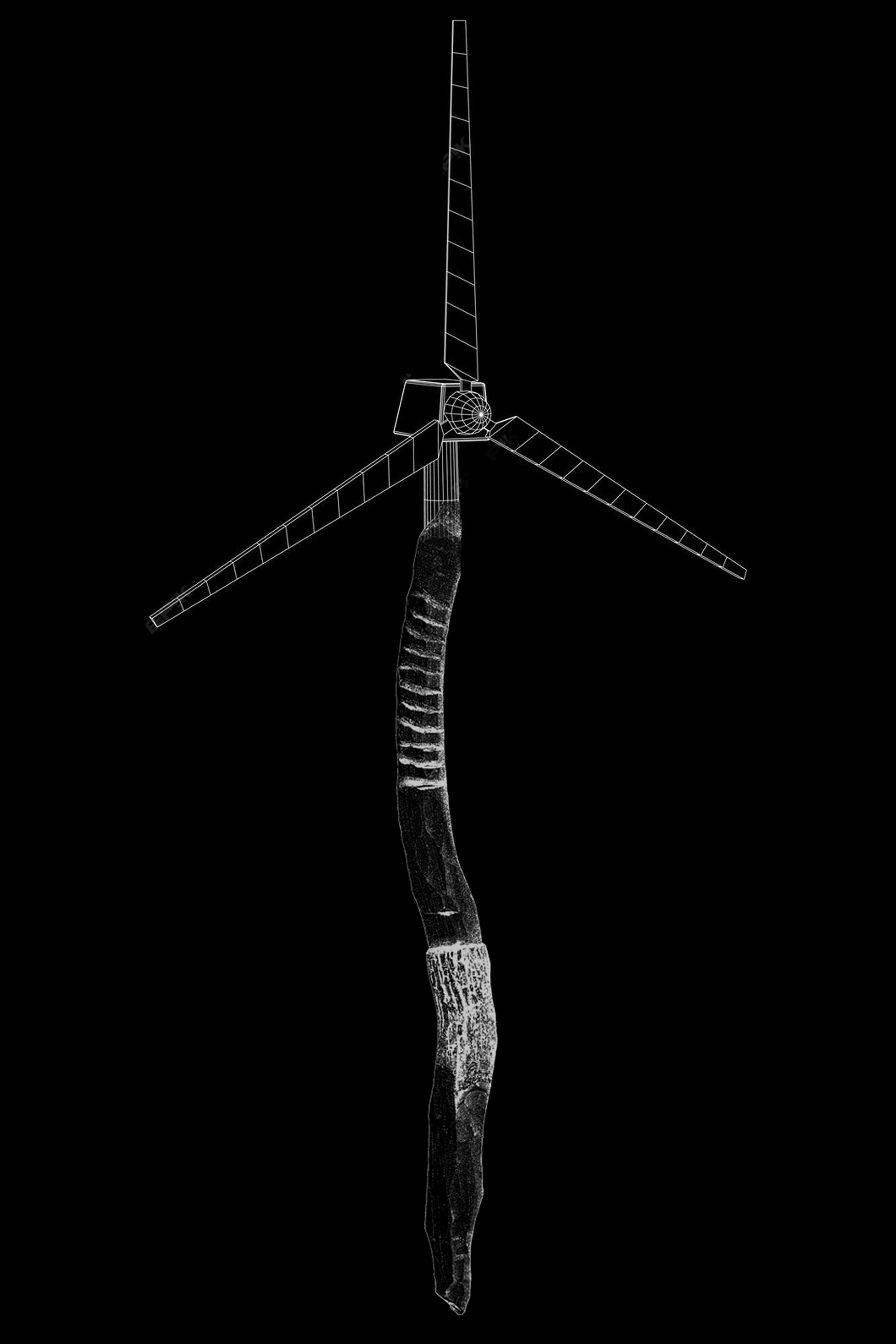
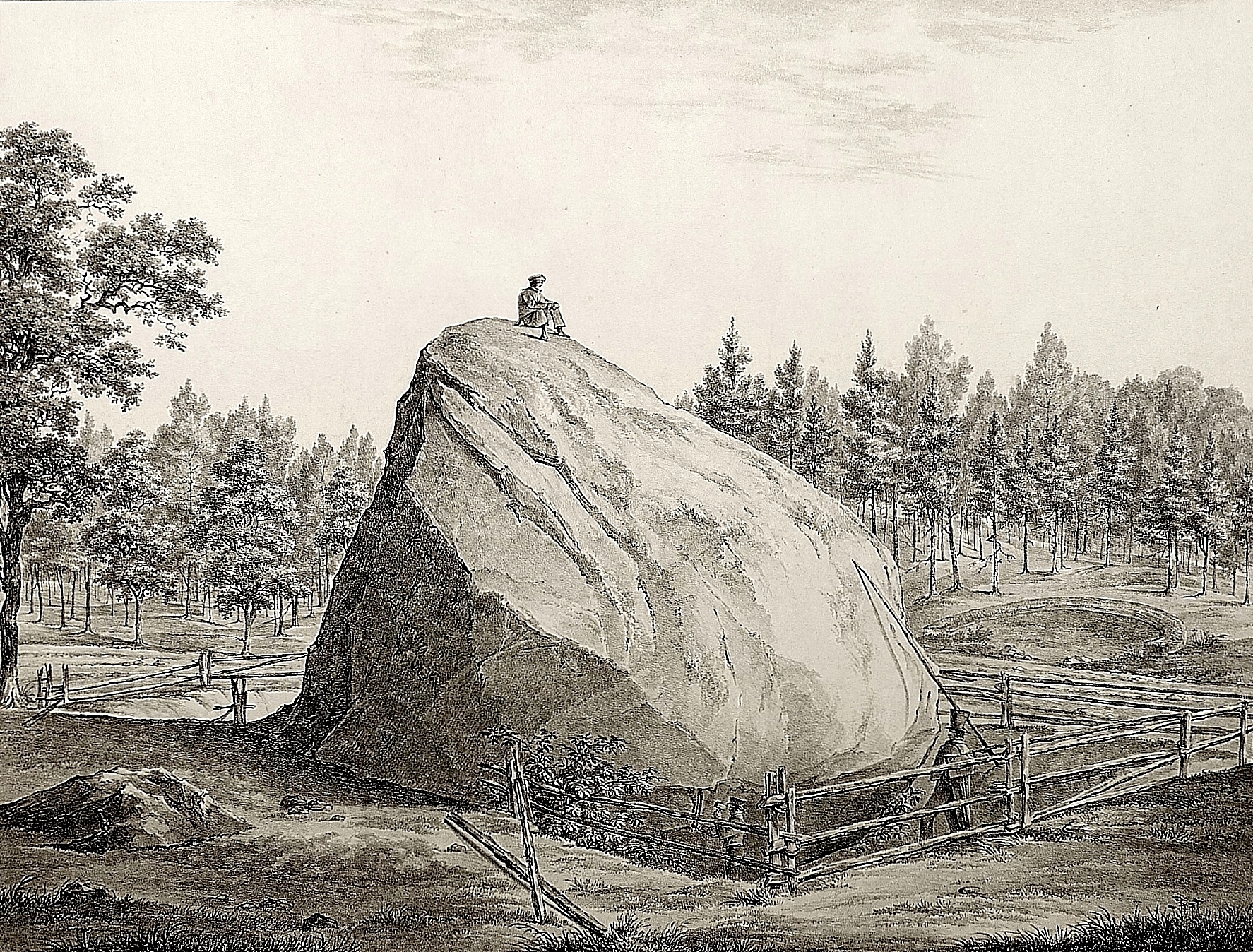
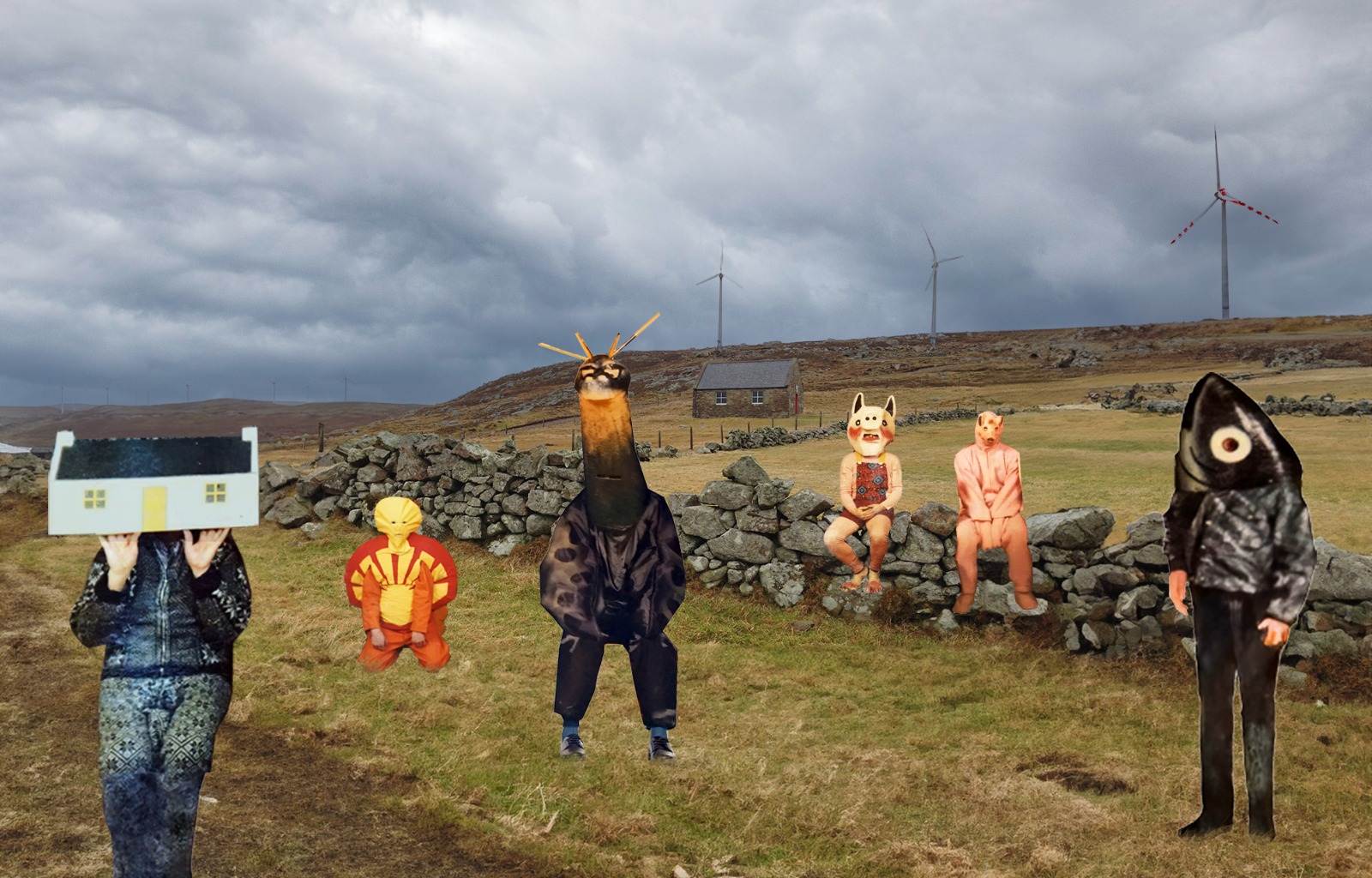
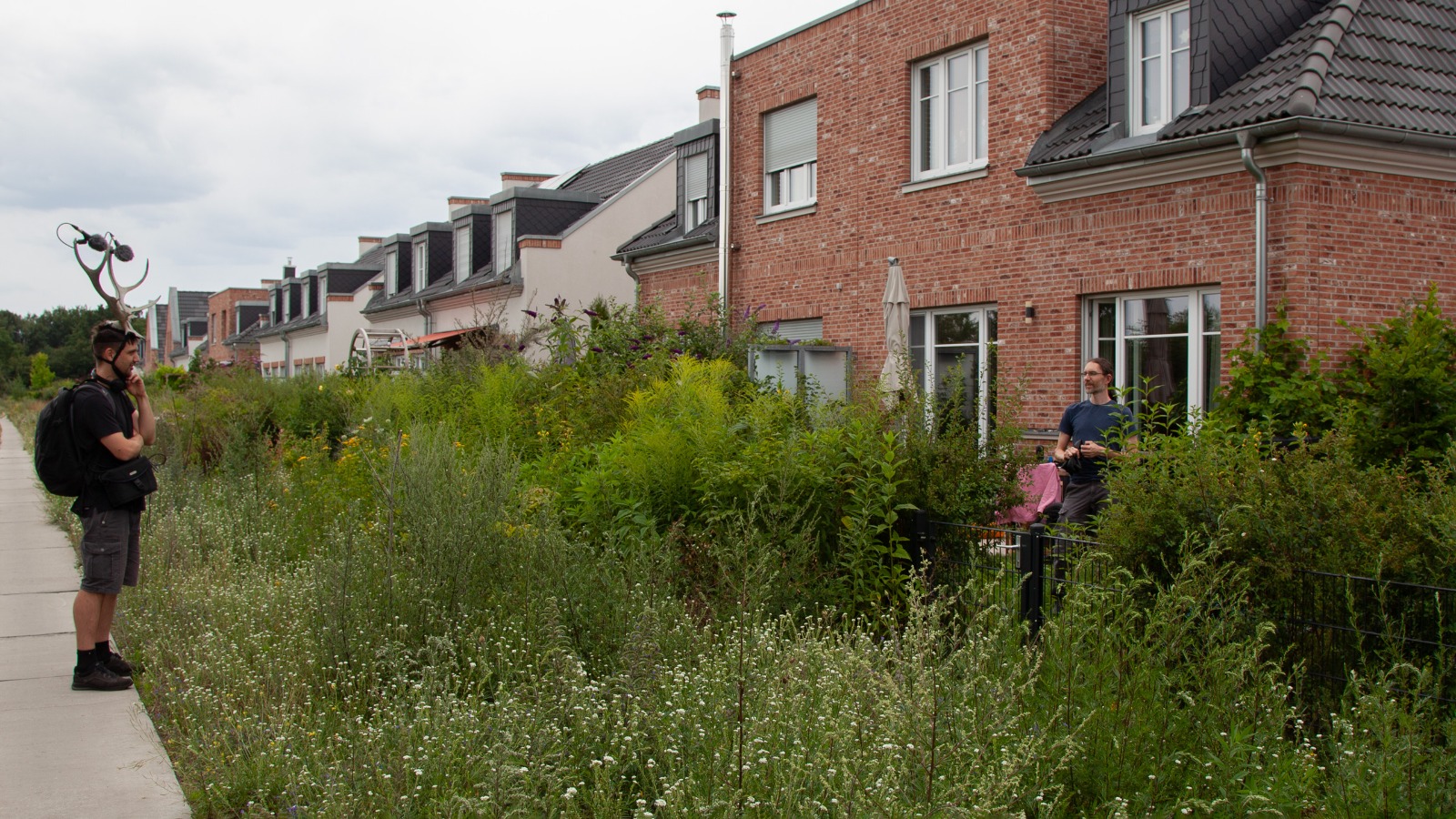
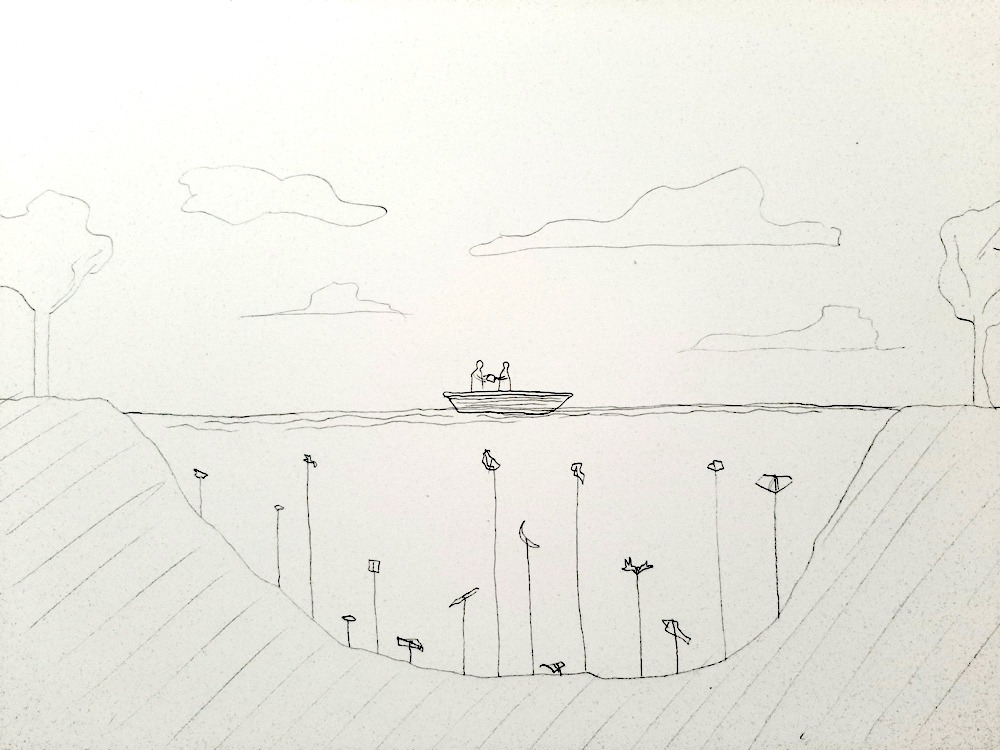
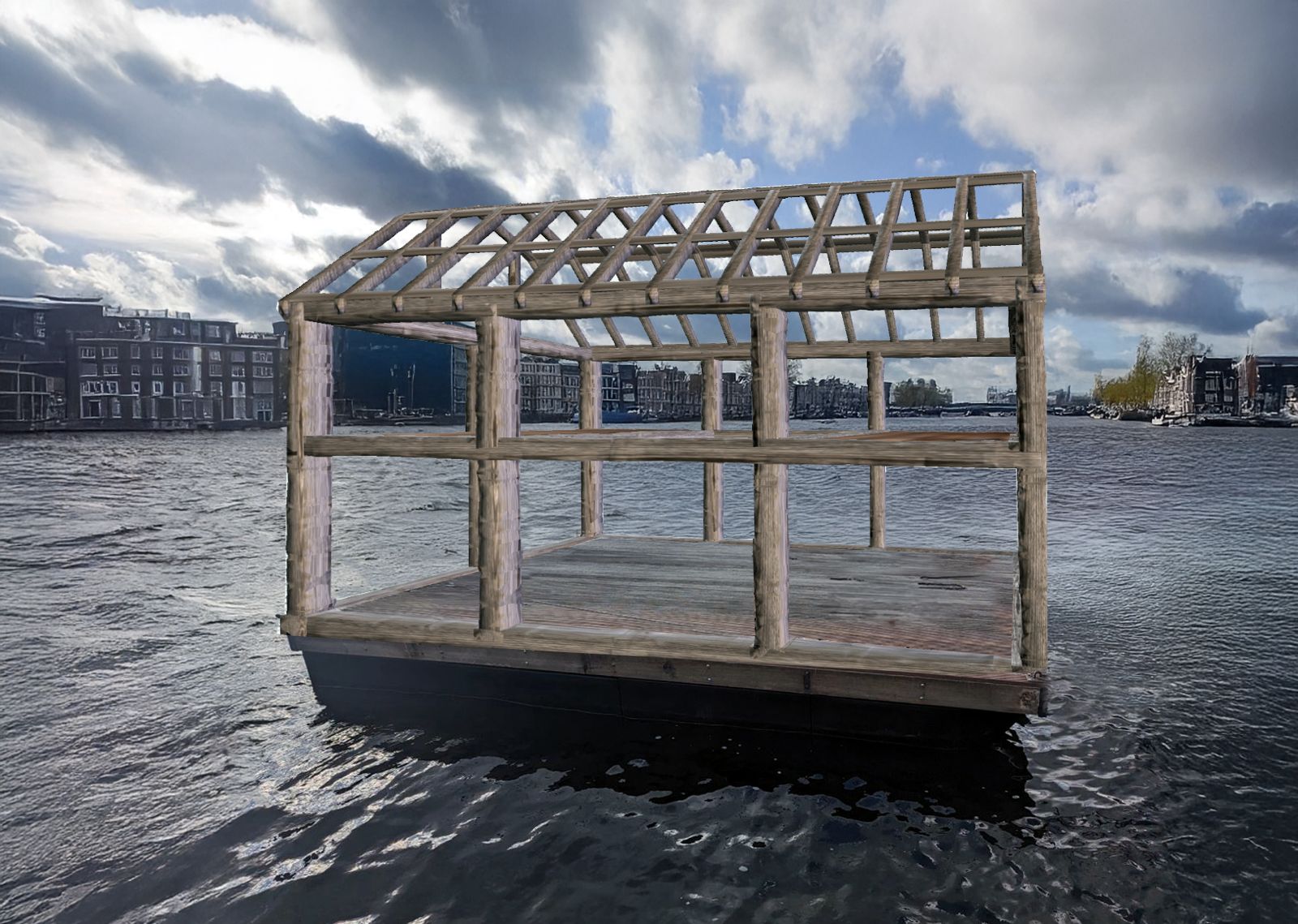
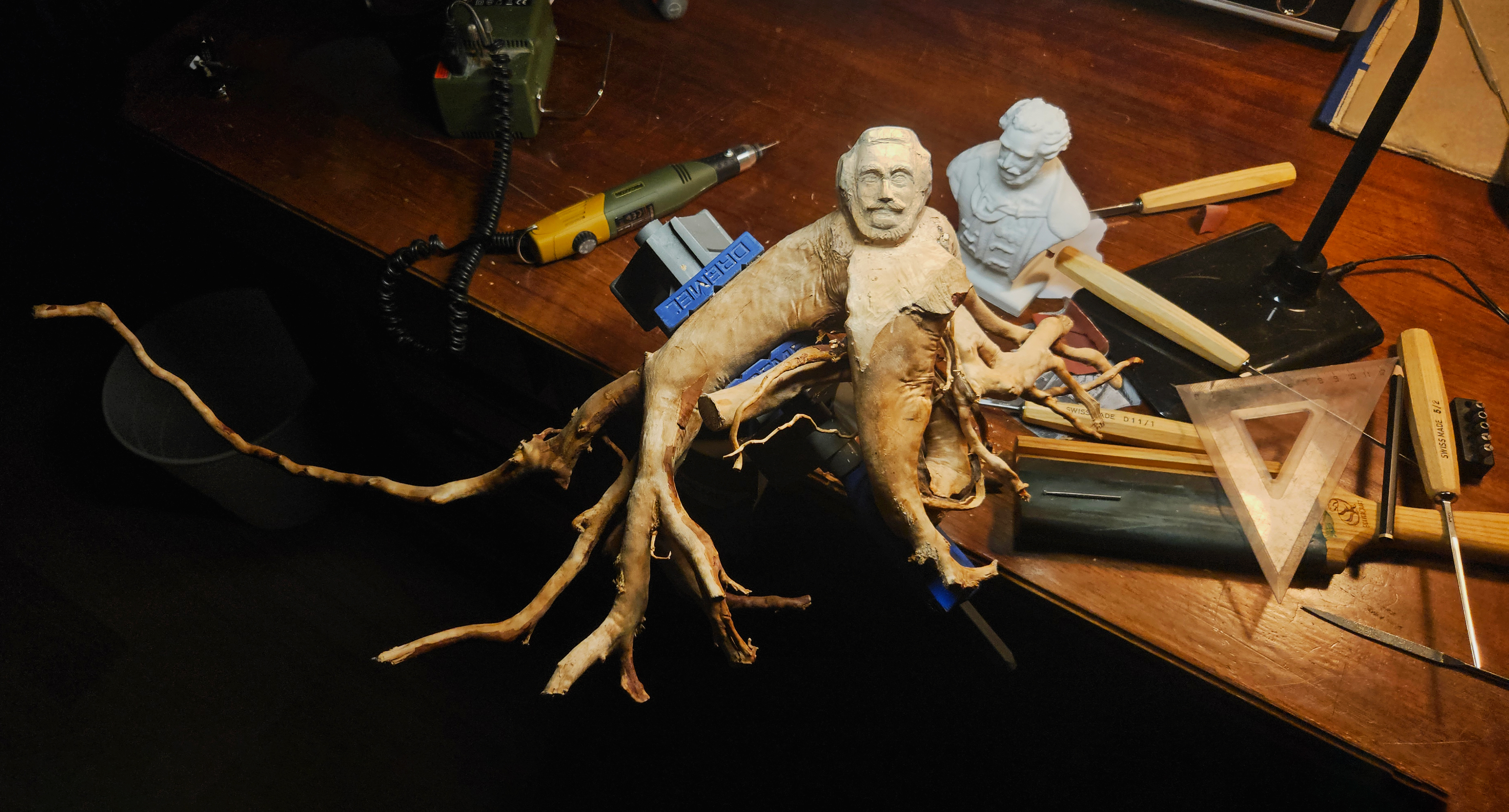
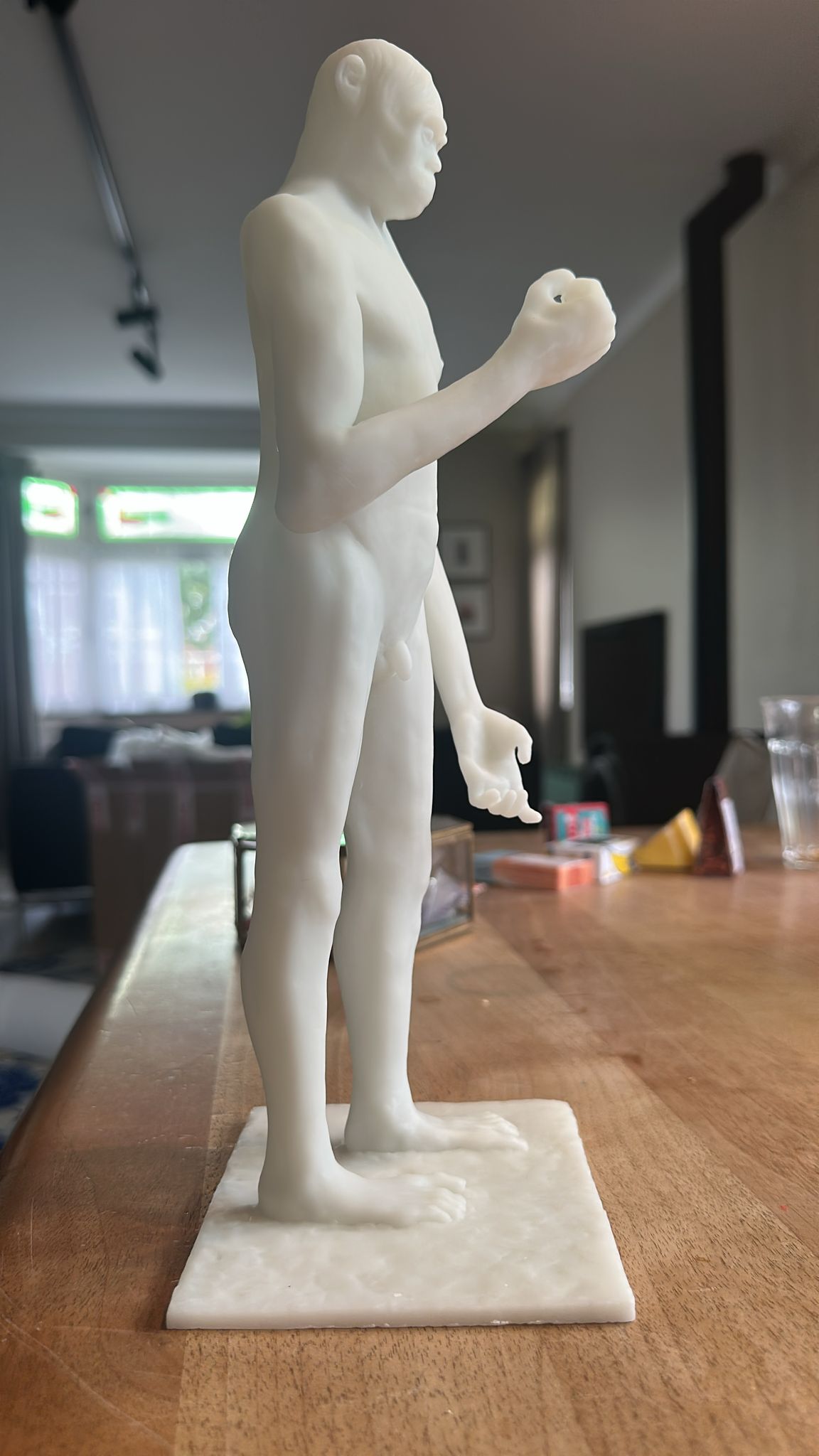
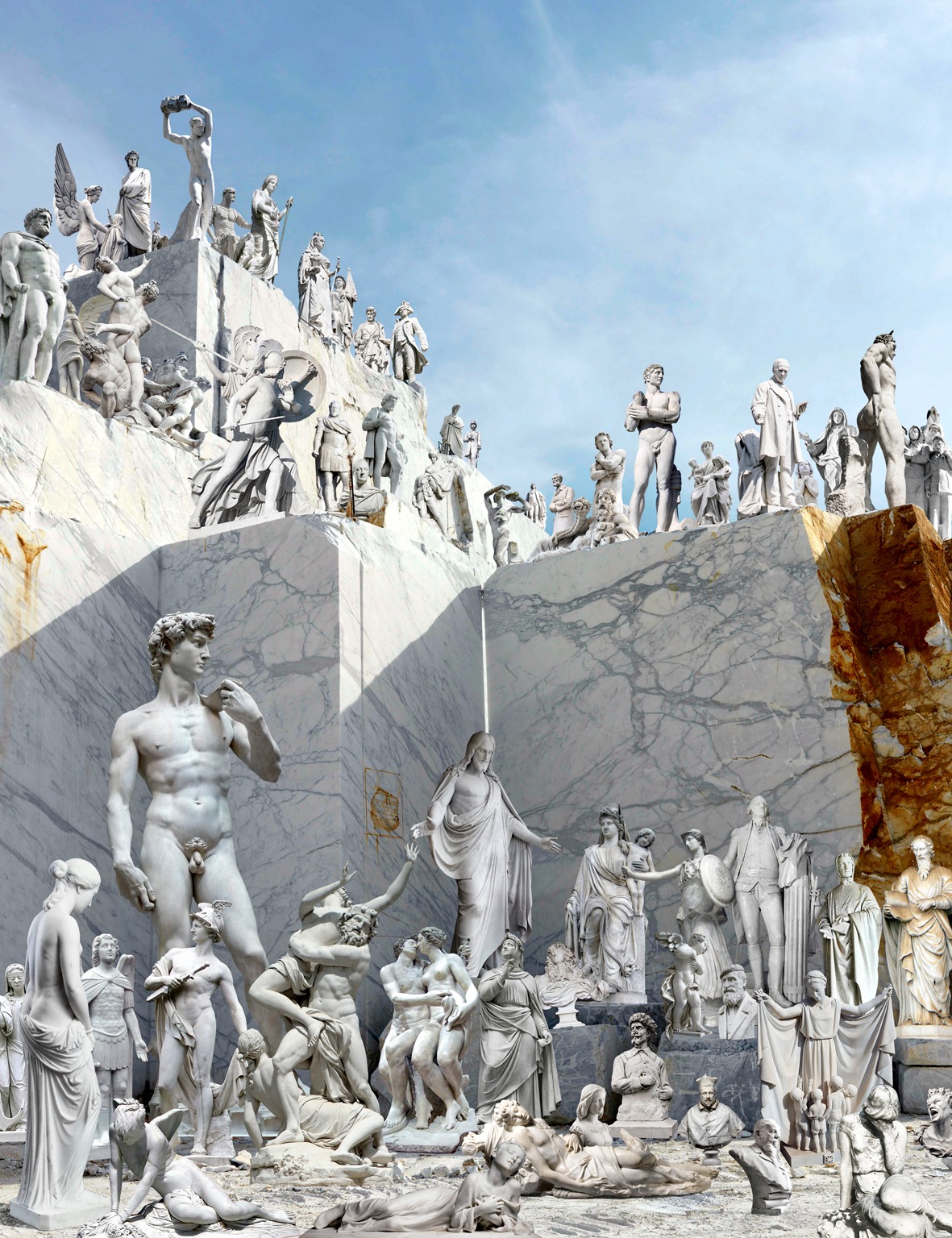
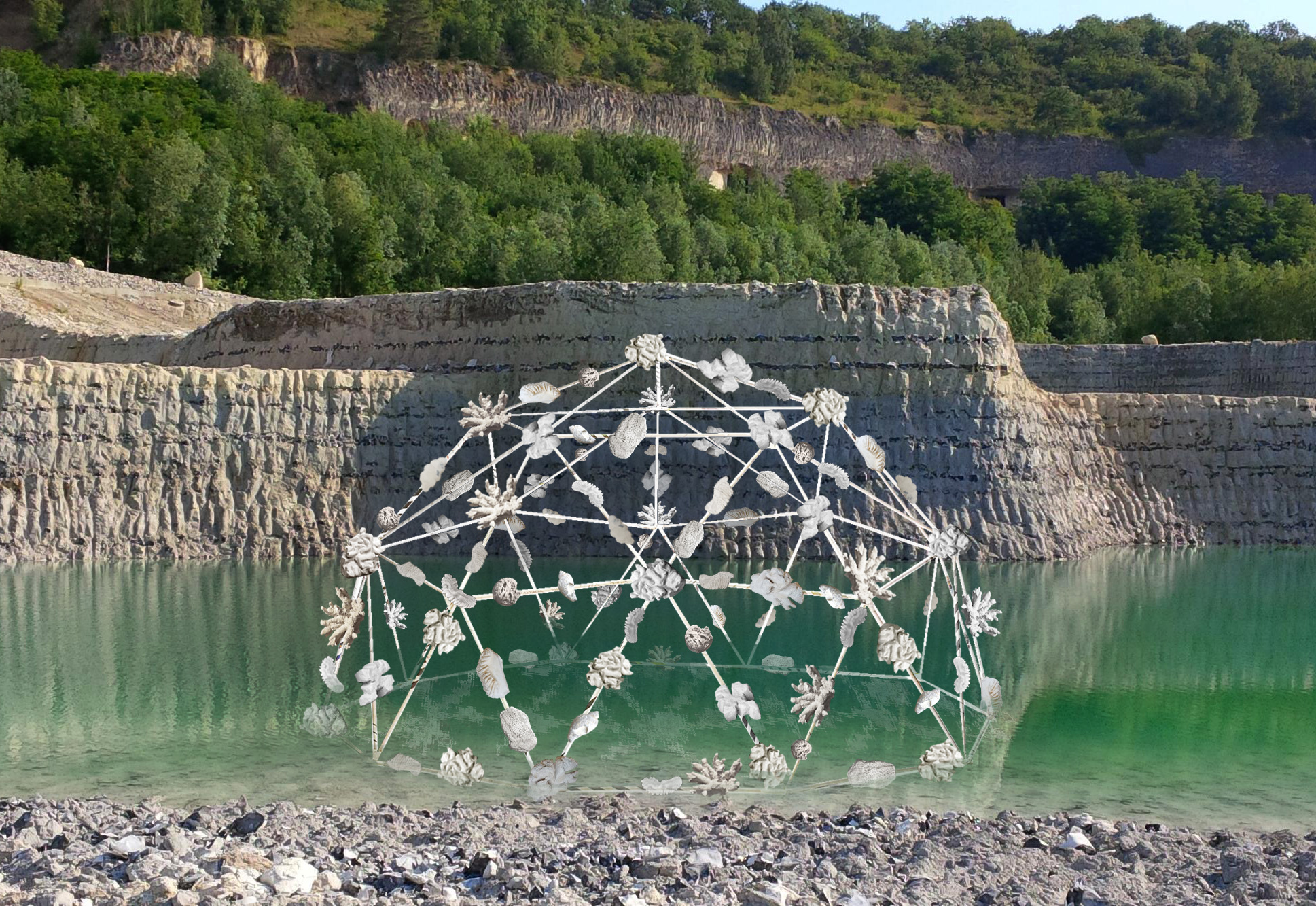
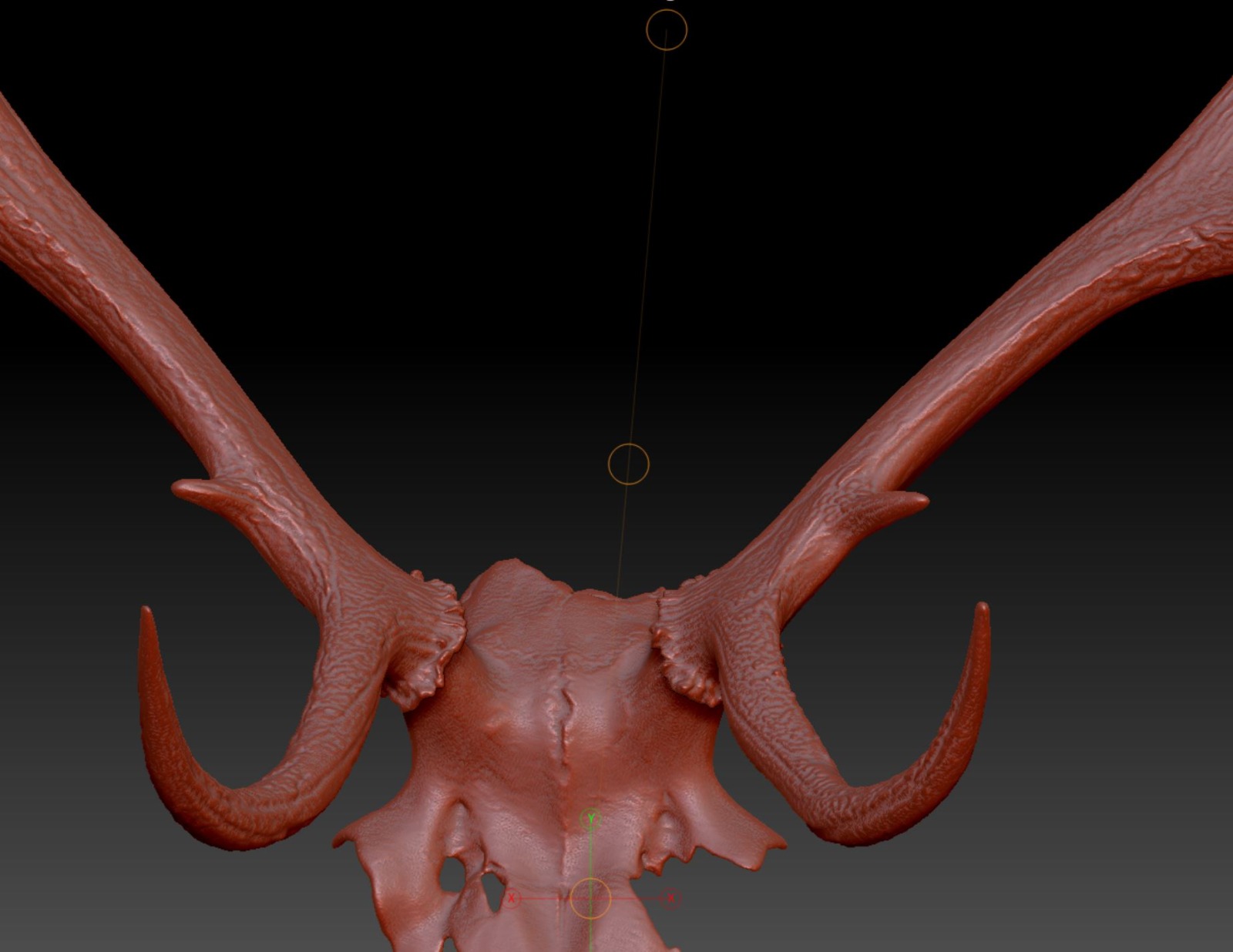
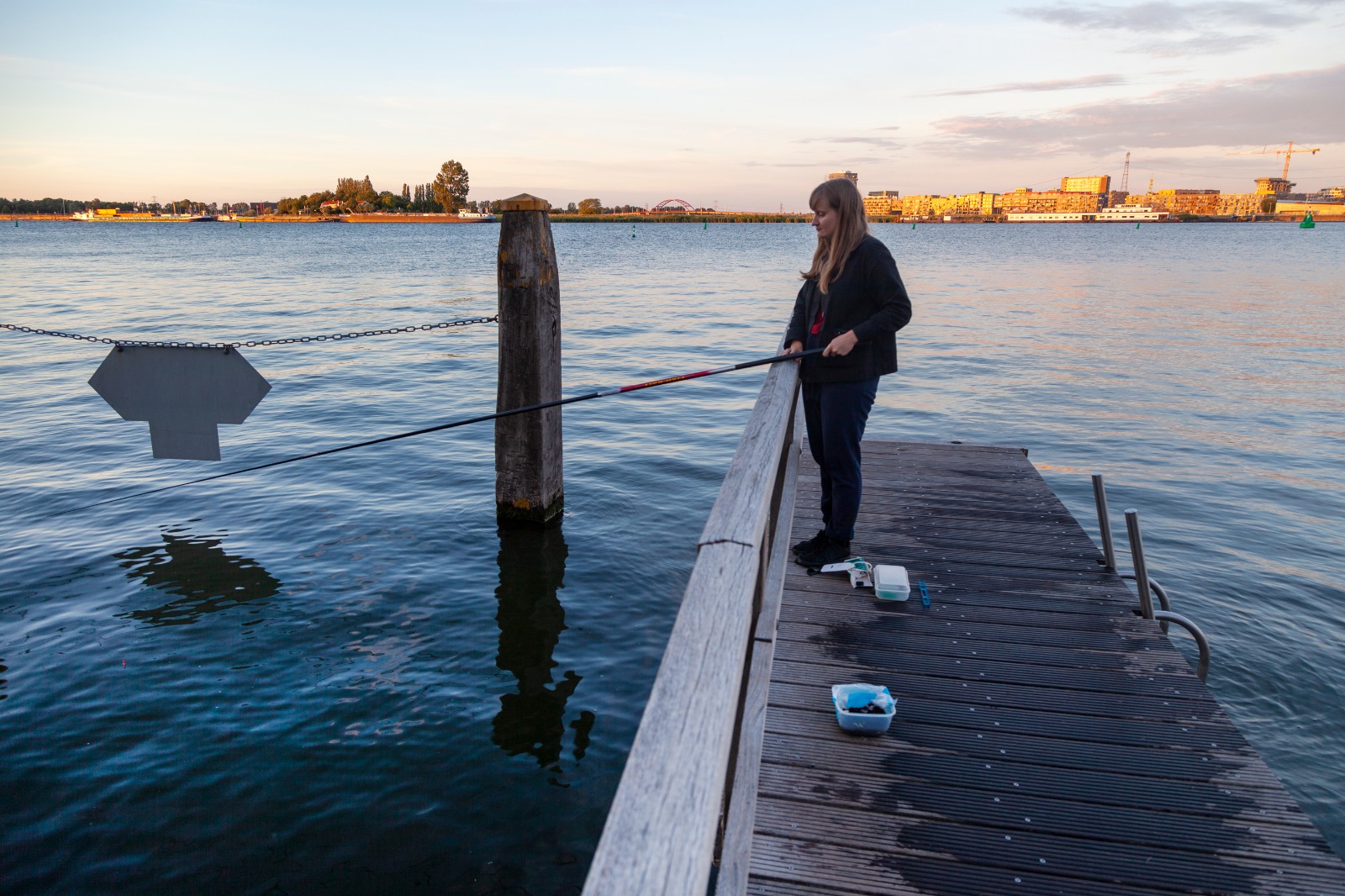



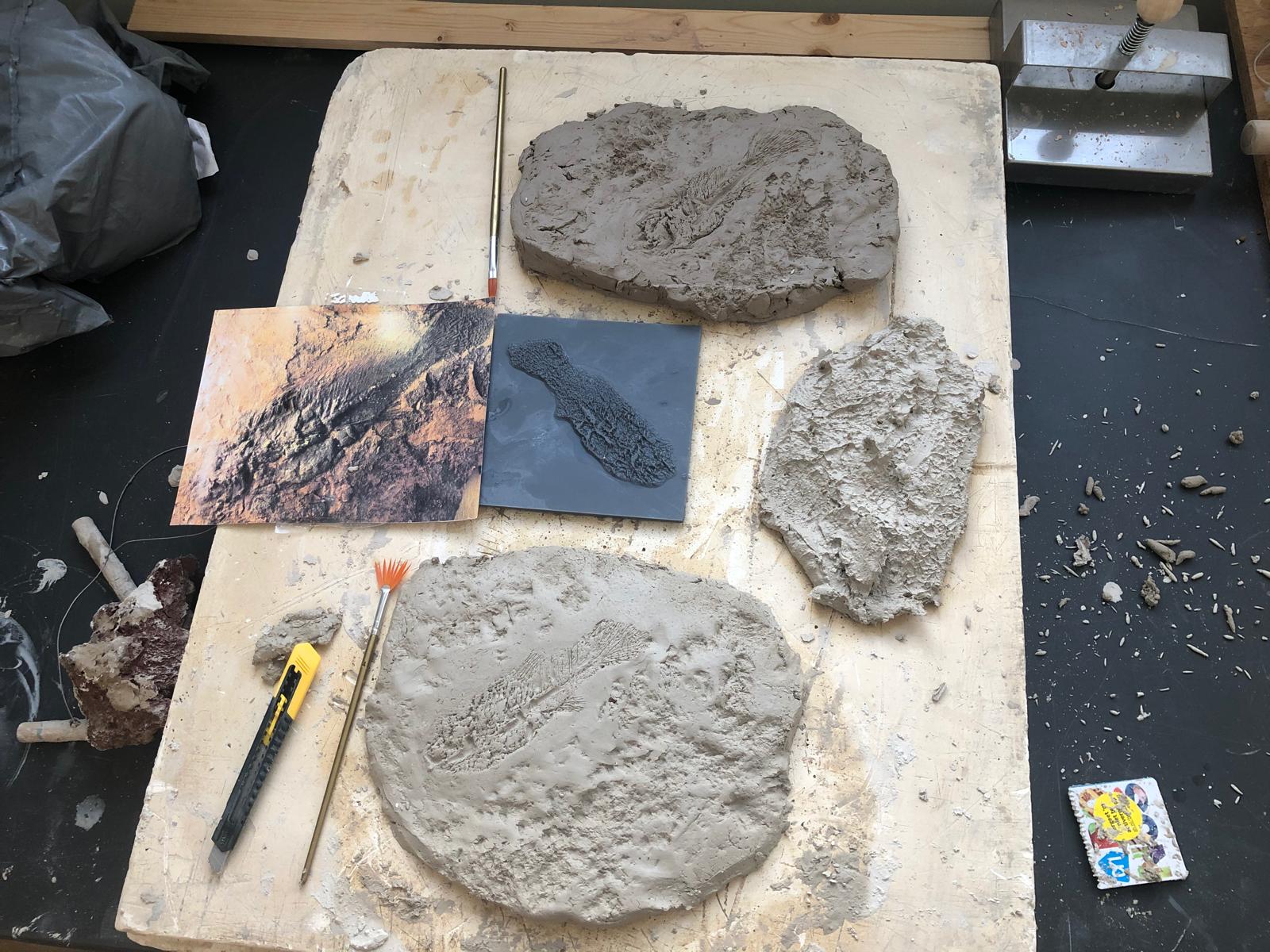

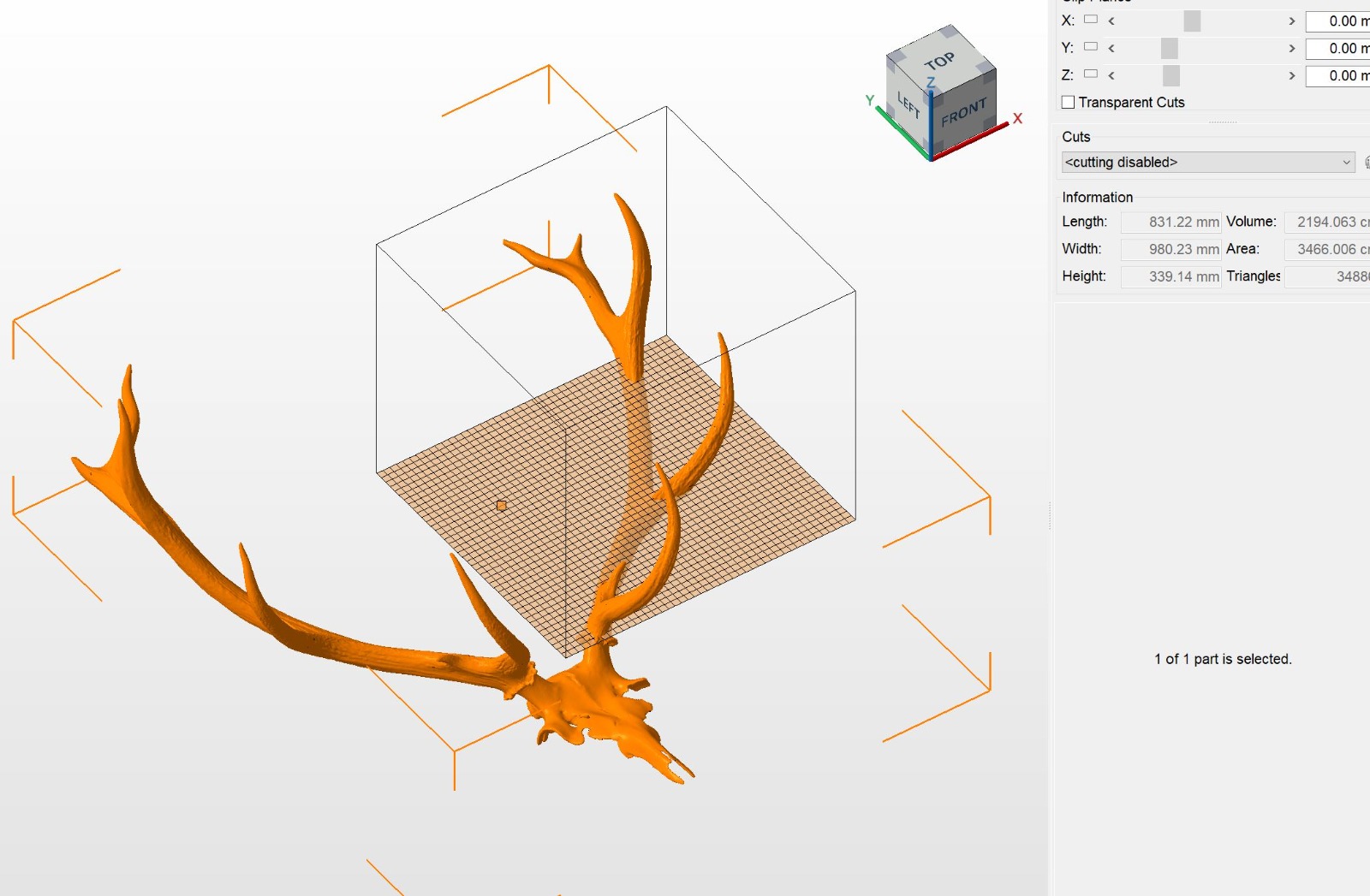

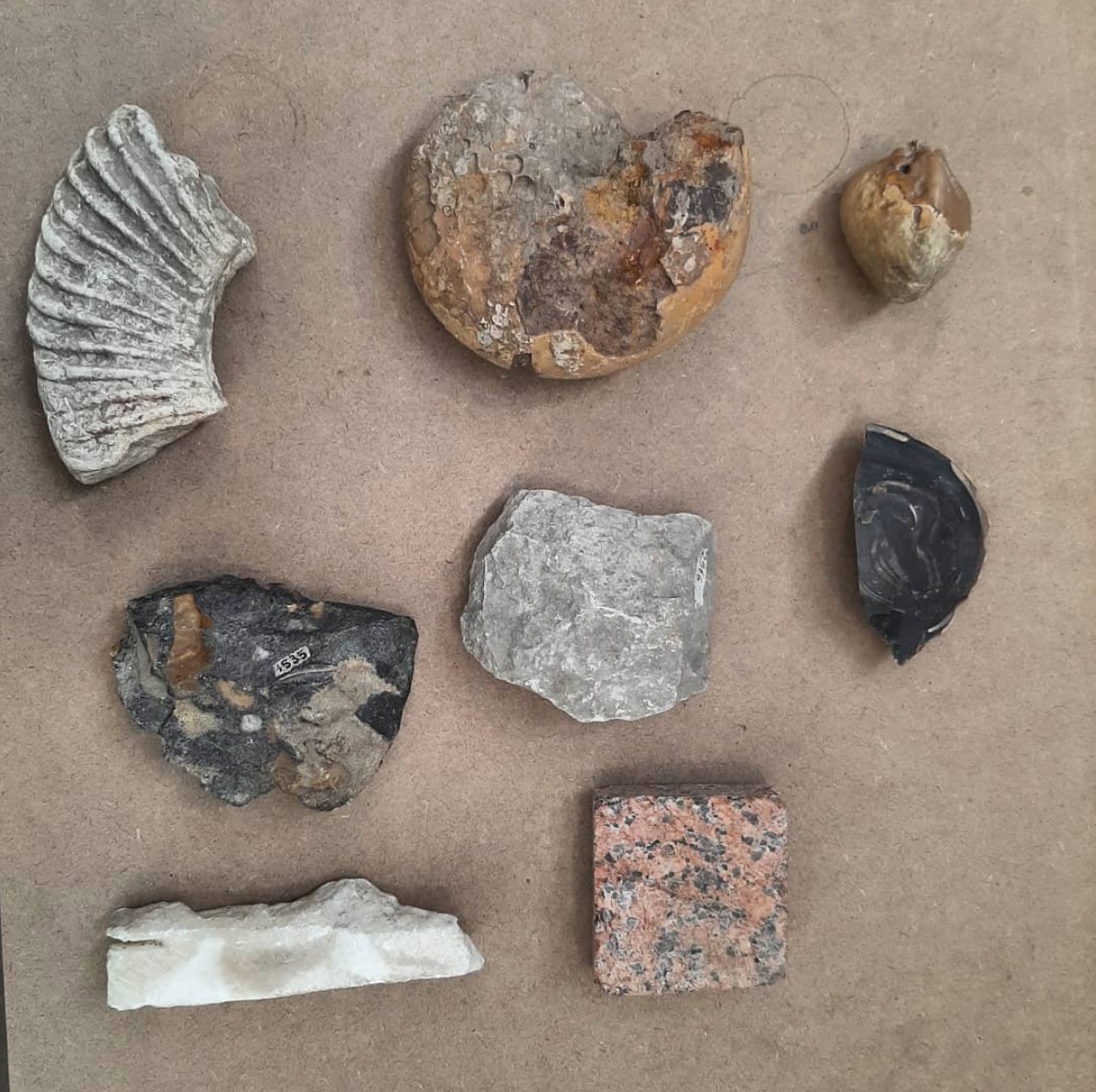
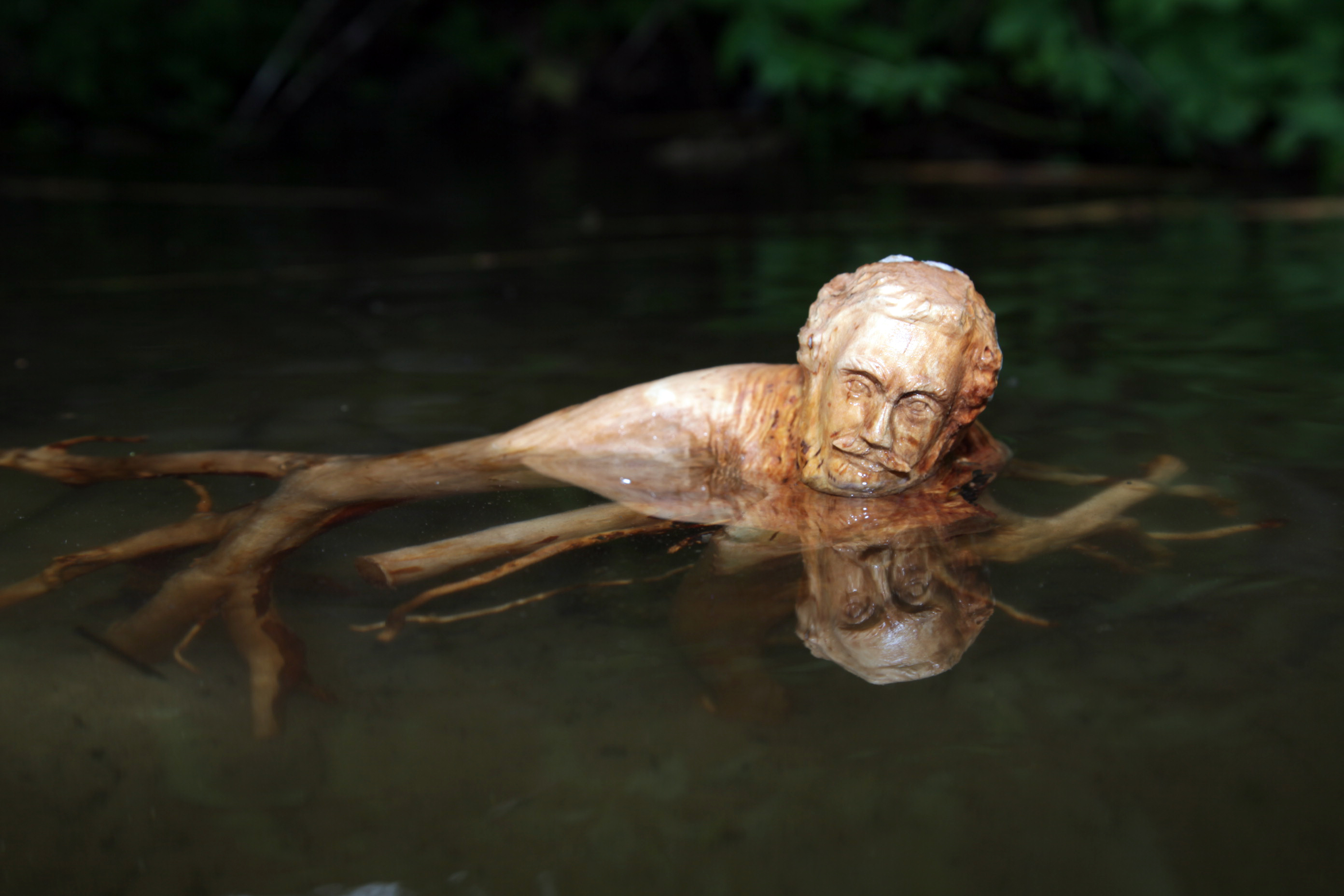



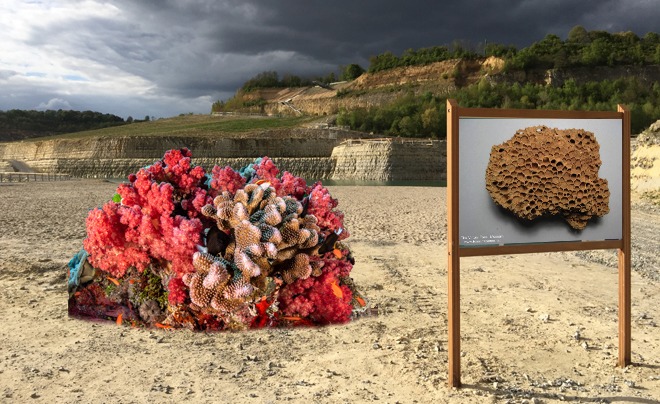



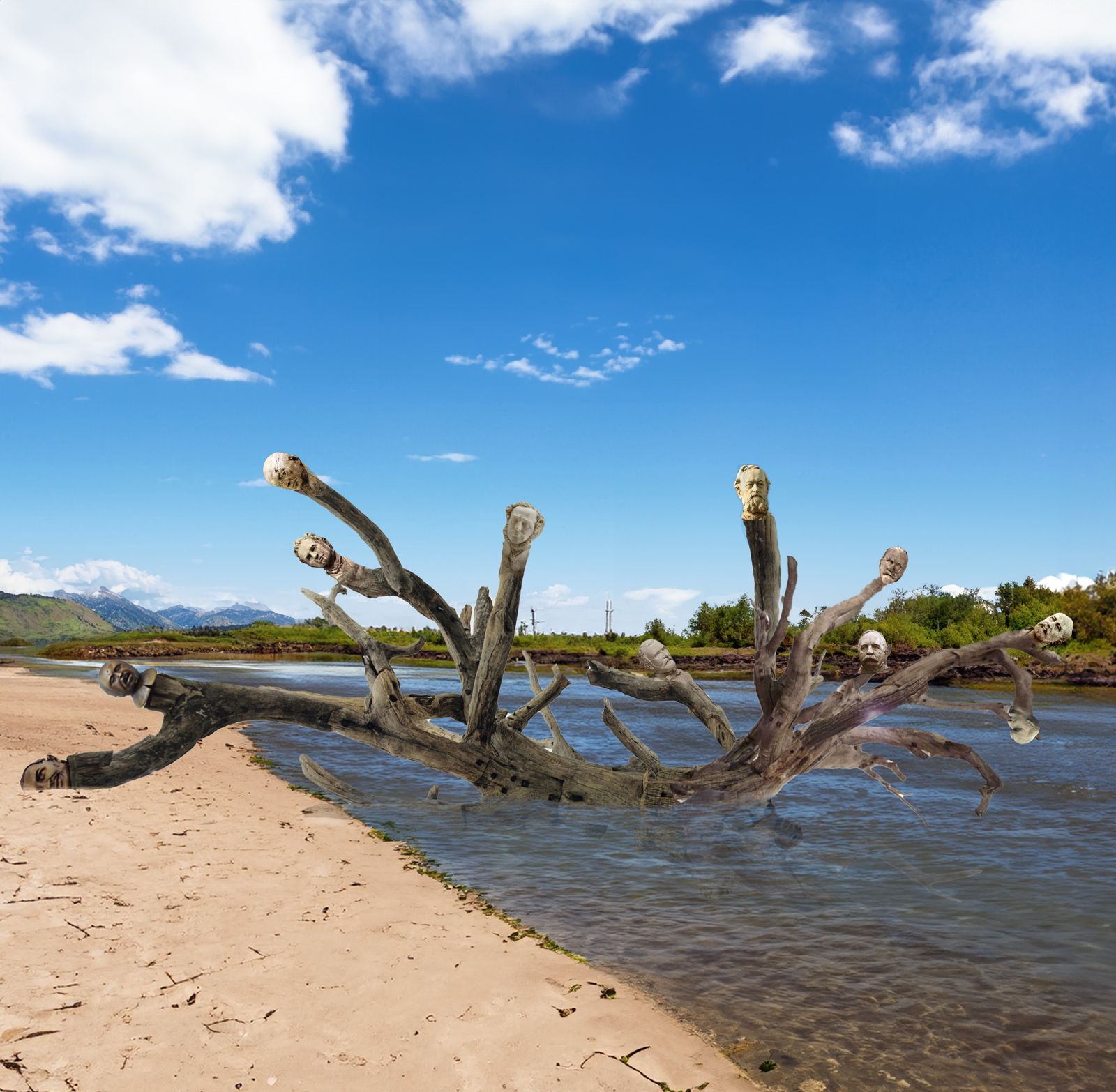

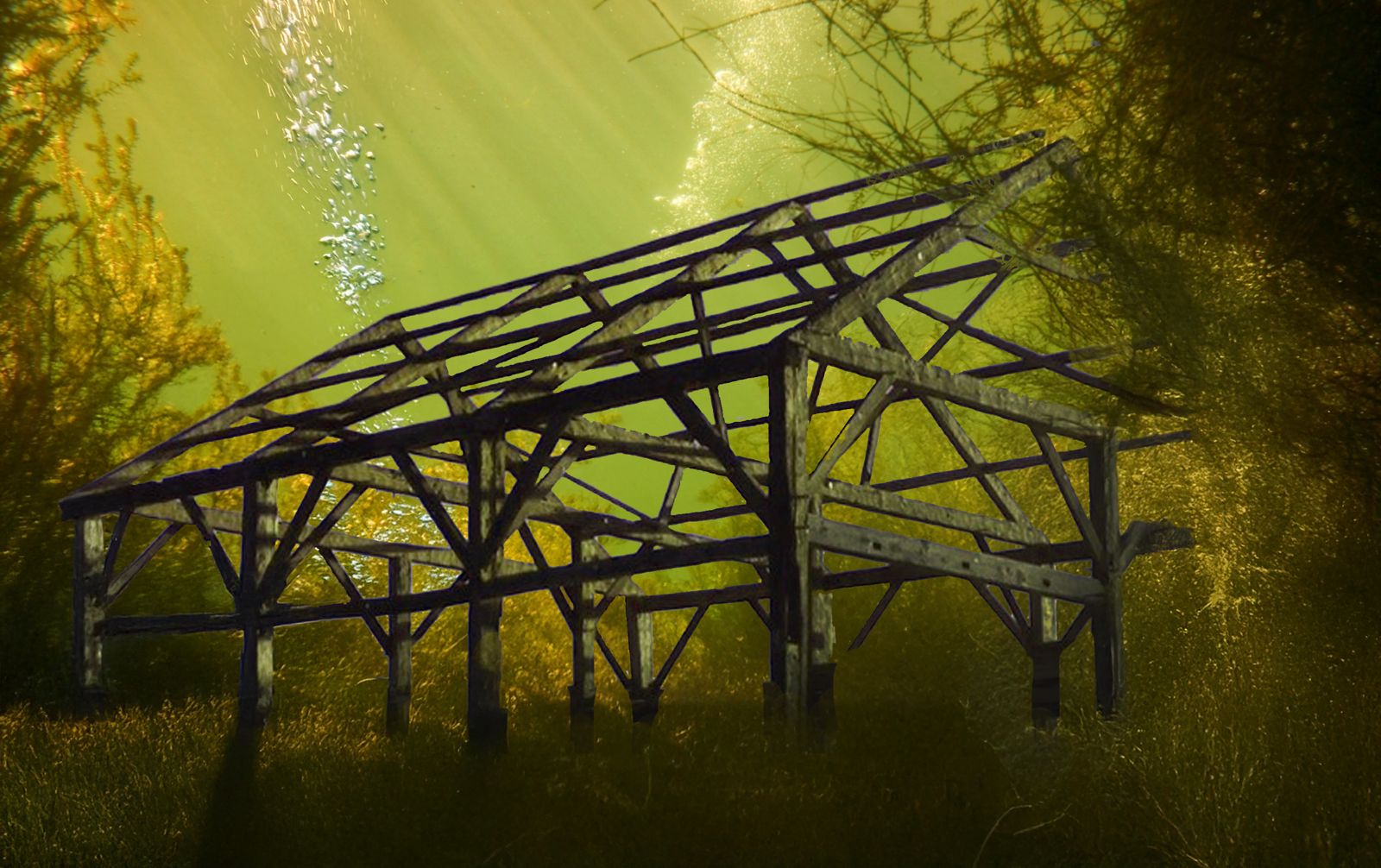
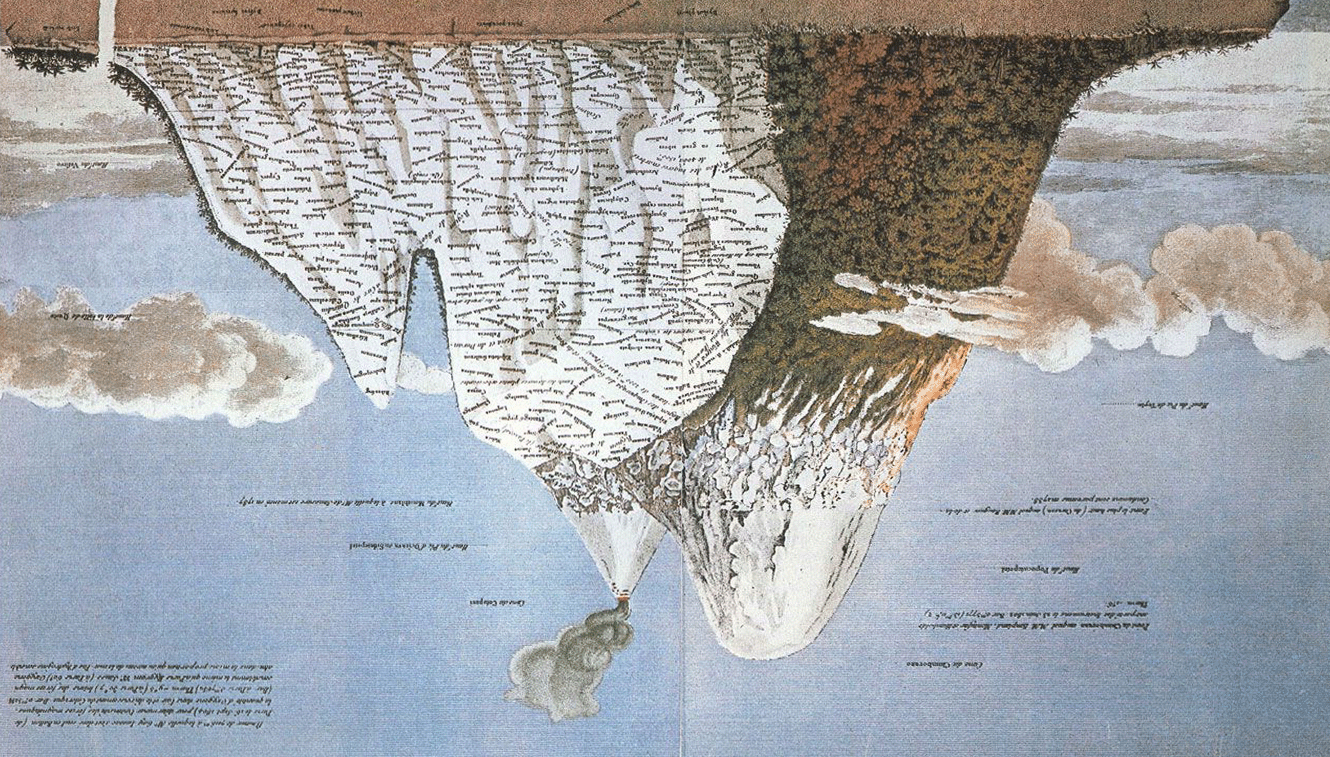 Alexander von Humboldt - Ideen zu einer Geographie der Pflanzen. Tübingen 1807, reimagined
Alexander von Humboldt - Ideen zu einer Geographie der Pflanzen. Tübingen 1807, reimaginedas quarry.
ABOUT
In 2020, visual artists Miriam Sentler (1994, DE/NL/NO) and Wouter Osterholt (1979, NL/DE) set up an interdisciplinary research initiative: Deep Time Agency.
DTA is designed as a multi-year research project that recontextualizes archaeological objects in industrially changed landscapes, in collaboration with local residents, stakeholders and institutions. The initiative merges different historical time layers of places to form a material voice for the present and future of the disrupted landscapes, working in an activist and poetic manner with the symbolics of the objects. By highlighting objects exposed by industrial excavations, we seek to develop a sense of belonging in the disrupted landscapes themselves and on a larger scale in the Anthropocene era.
Why? Industrial landscapes are often completely transformed after resources are mined, developing them into new “natural areas”, wherein all traces and scars of the past are erased. This is often based on the desire to 'return' the used landscapes, thereby creating new recreational areas. Due to prevailing archiving methods, the archaeological objects found during the industrial process are often placed in national collections, and thus no longer maintain any relationship with the landscape where they were found. Local inhabitants lose their houses, nature and local culture, causing what Bruno Latour coins “groundlessness”. This in turn forms the origins of what ecosopher Glenn Albrecht named “solastalgia”.
How? It is our mission to bring back a form of memory to the “erased” landscapes by temporarily relocating the archaeological objects on their original finding locations. This results in absurd and poetic installations and performances, whereby objects are relocated in the air (Ancestors Rising 2022) or underwater (Descent into the Future 2020). By doing so, we expose the thorough changing of the original landscape and merge different historical layers. In our project, the archaeological objects are seen as New Materialist agents from deep time, whose meanings and symbolism provide important input to contemporary debates about climate change and dealing with post-industrial landscapes.
DTA will consist of several cases, which will highlight a series of changing landscapes and bring them together in an overarching artistic project.
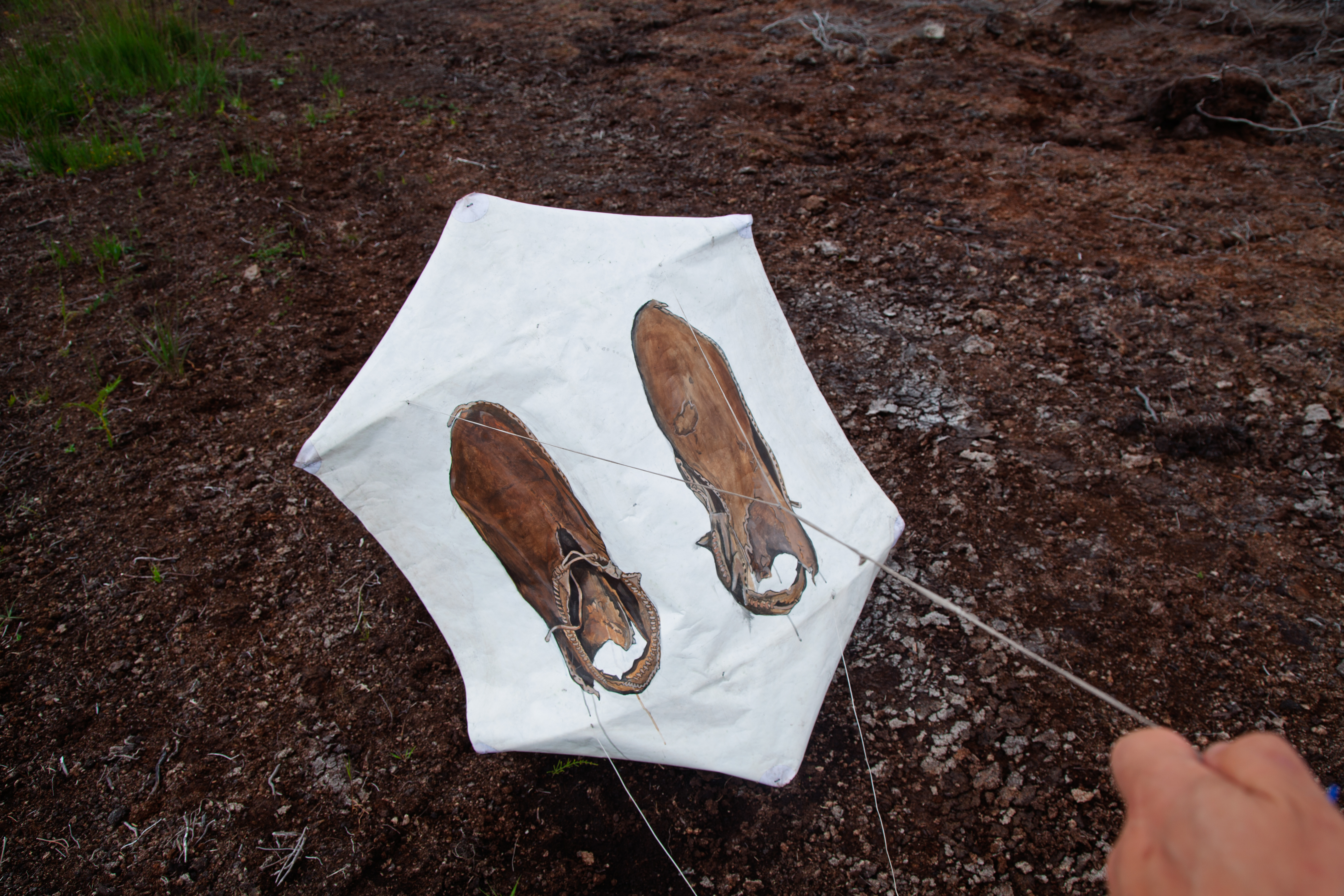
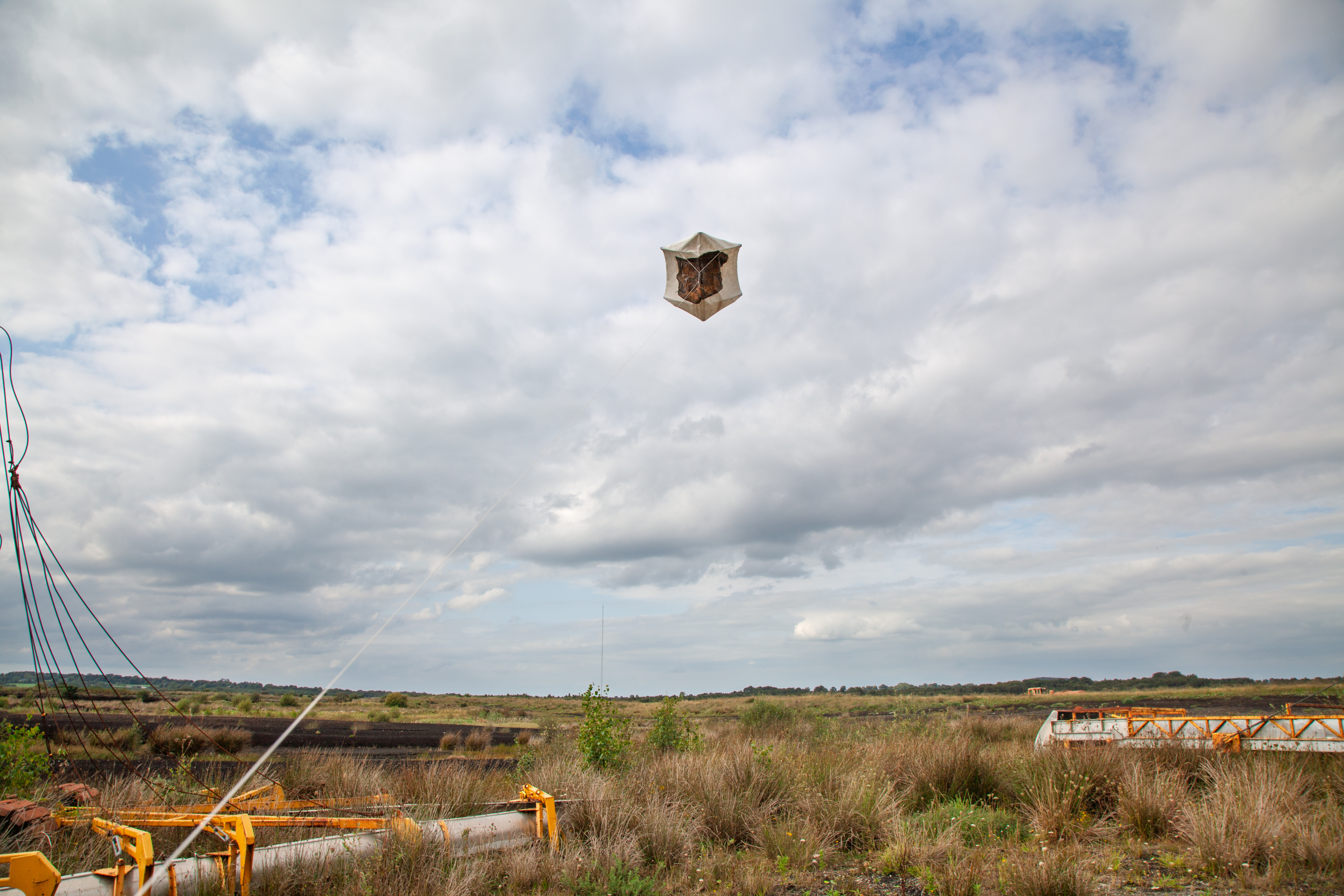
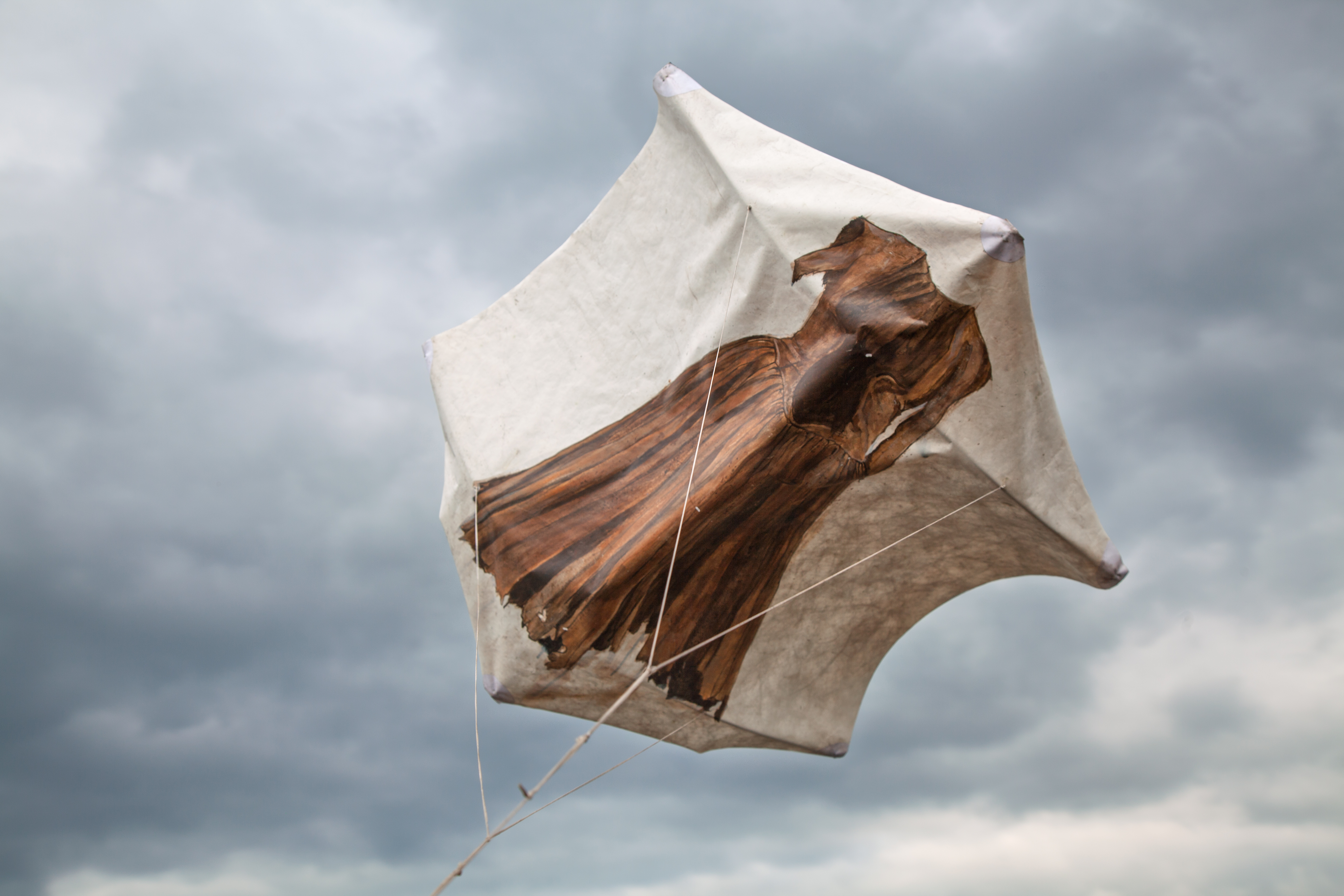
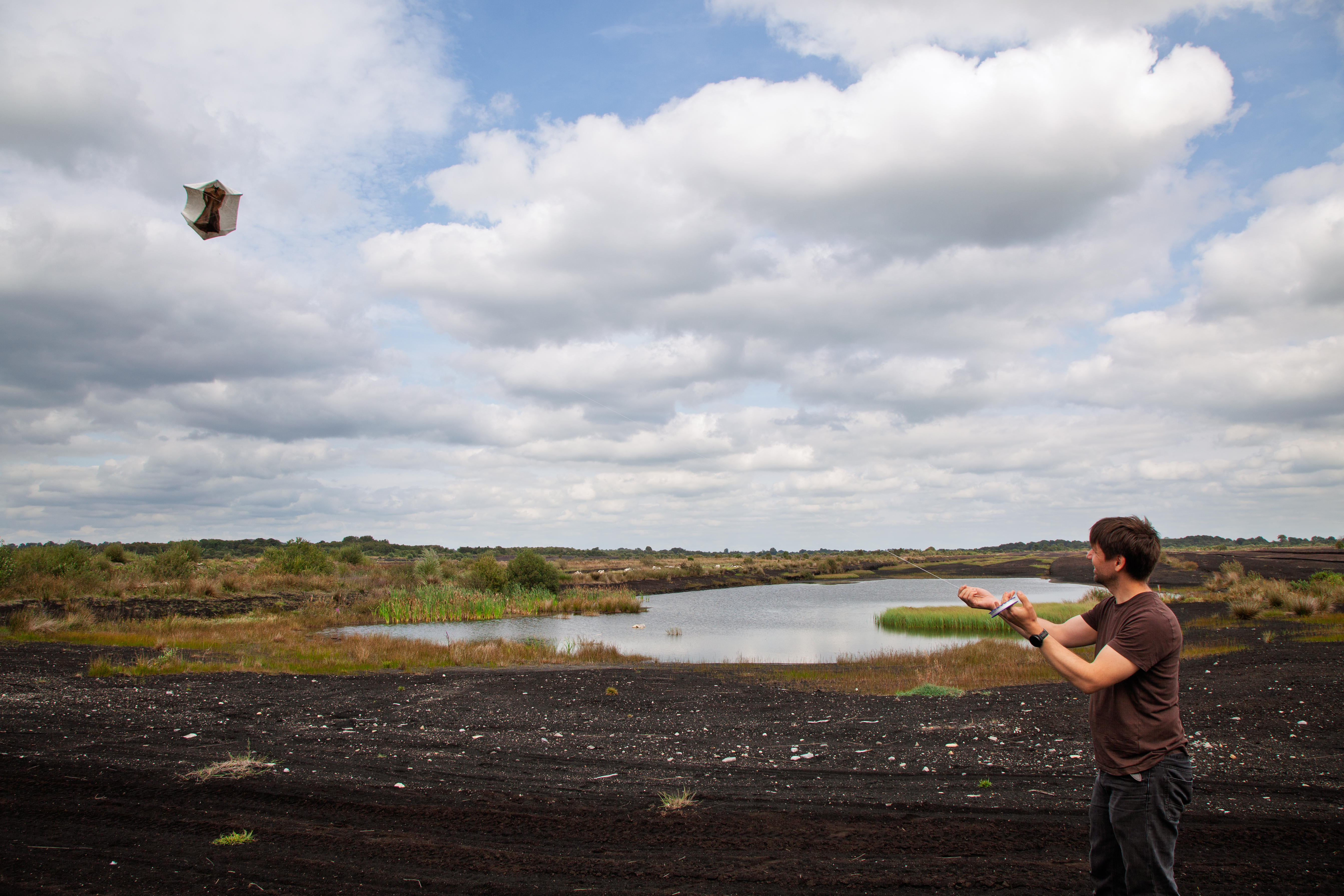
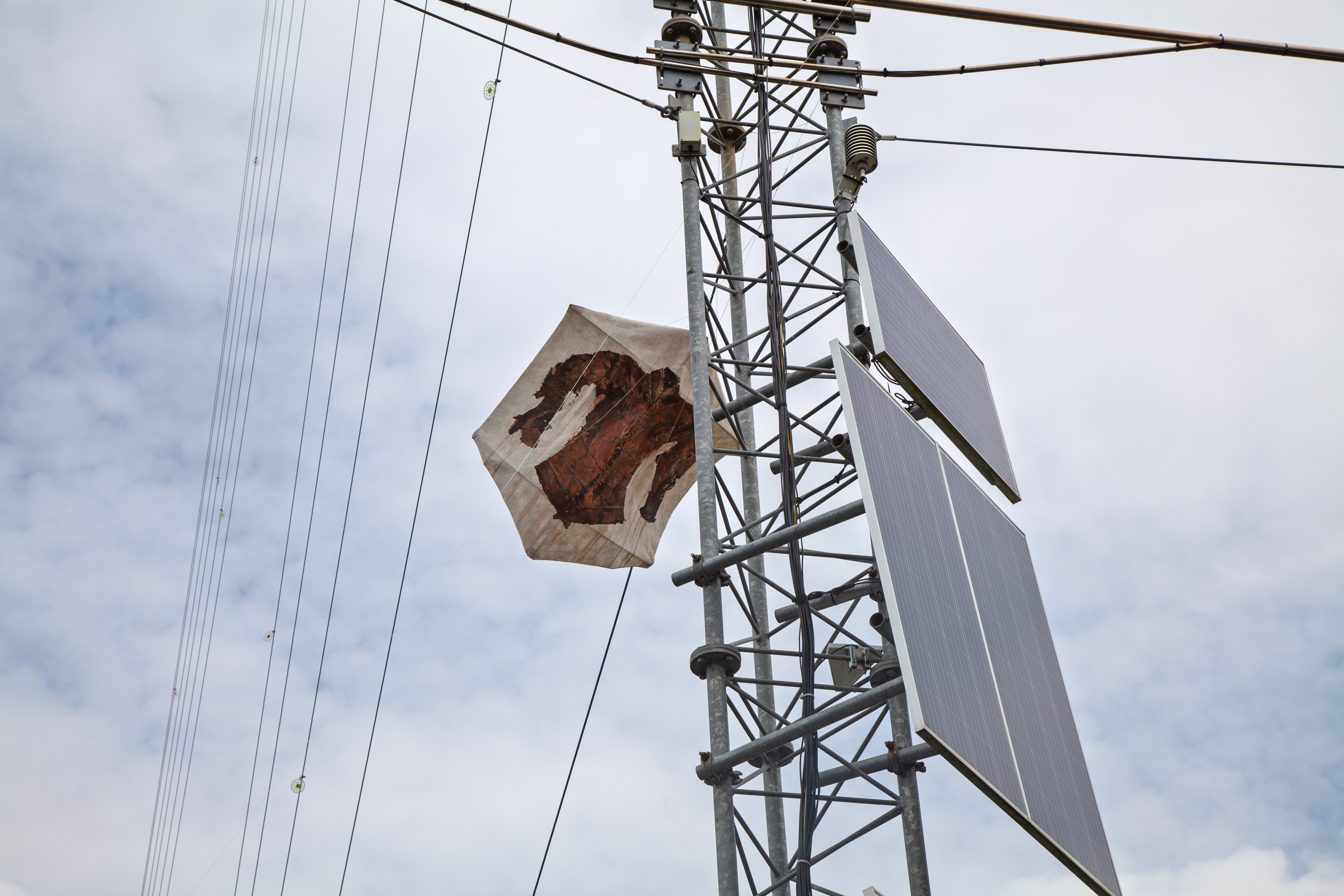
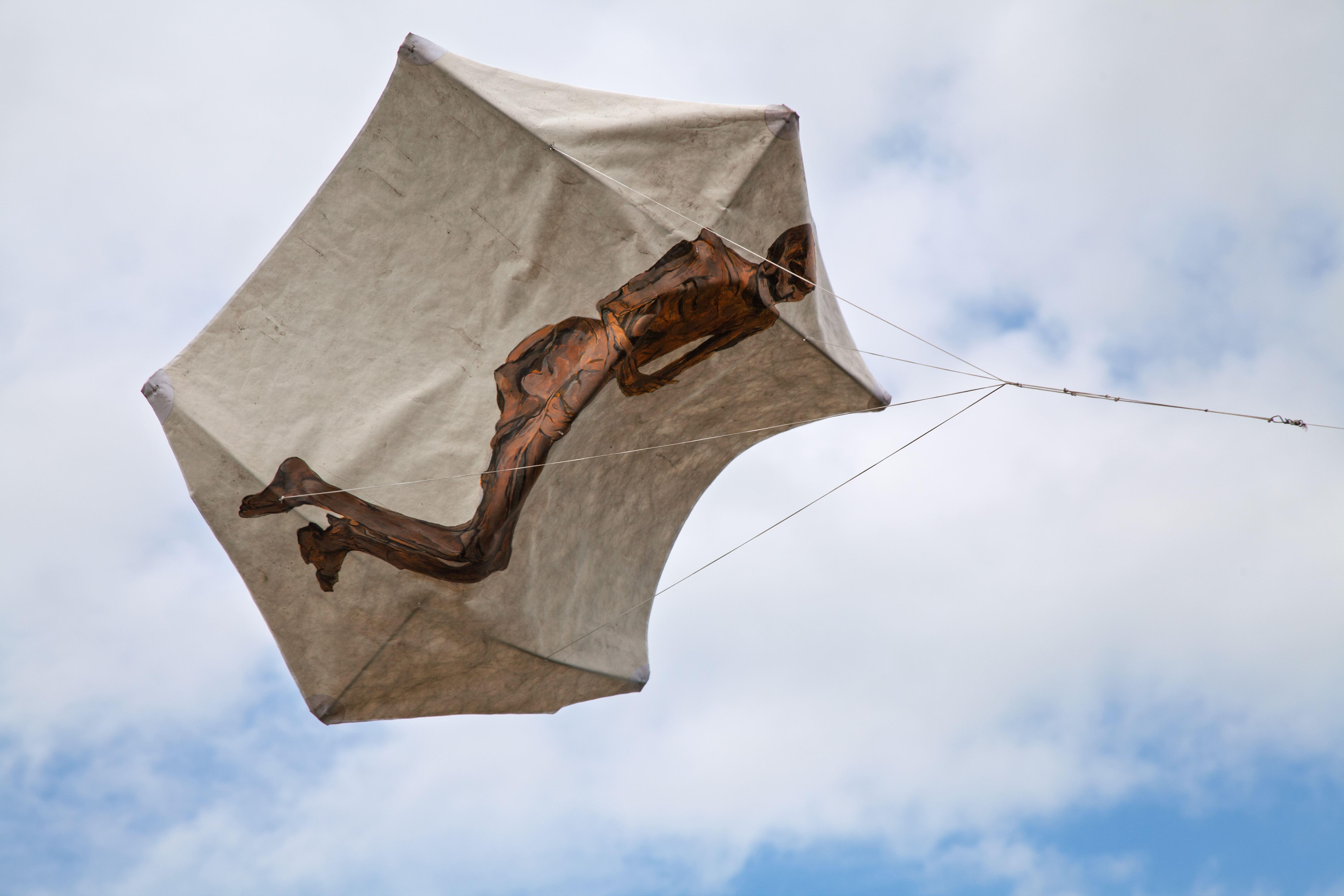
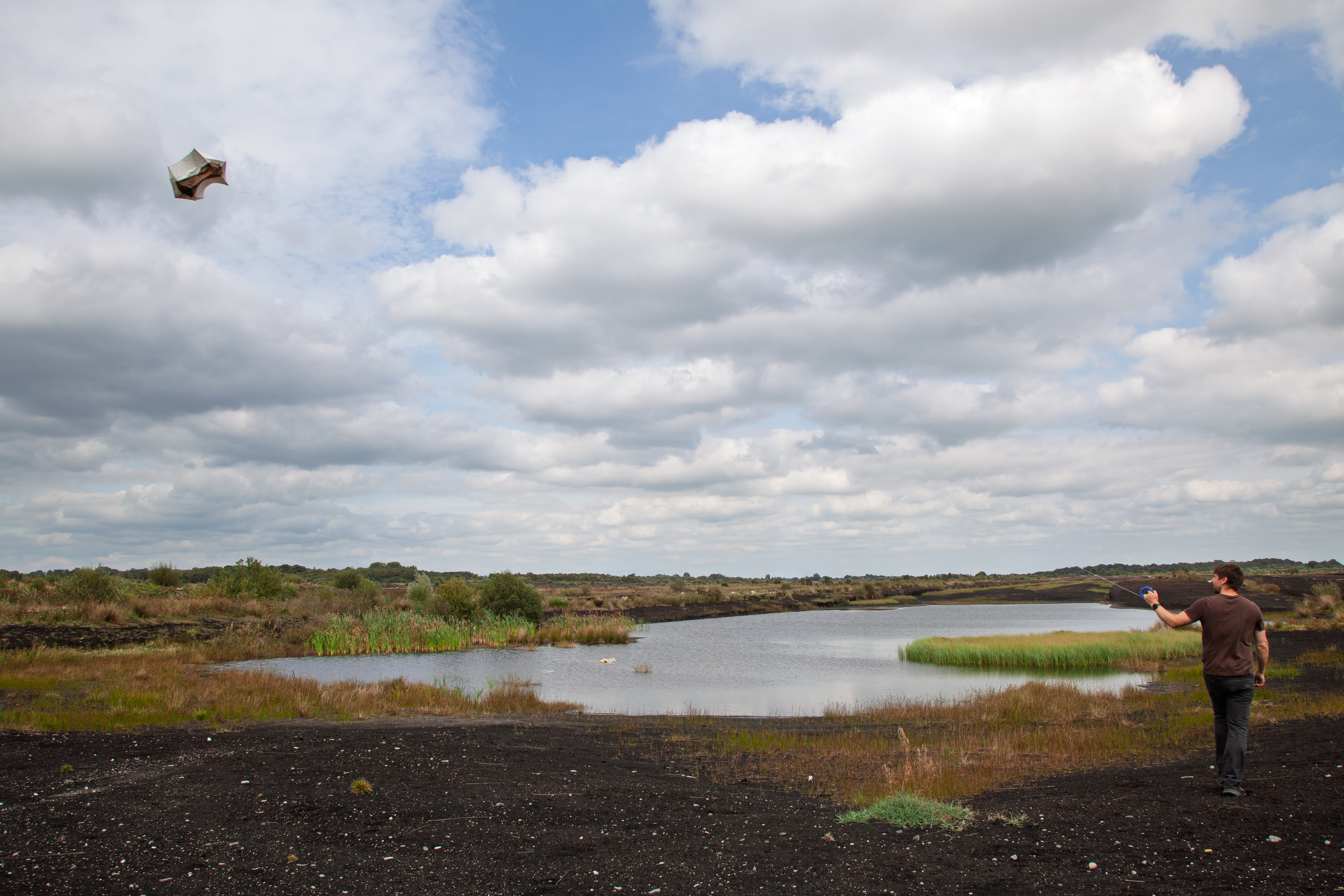

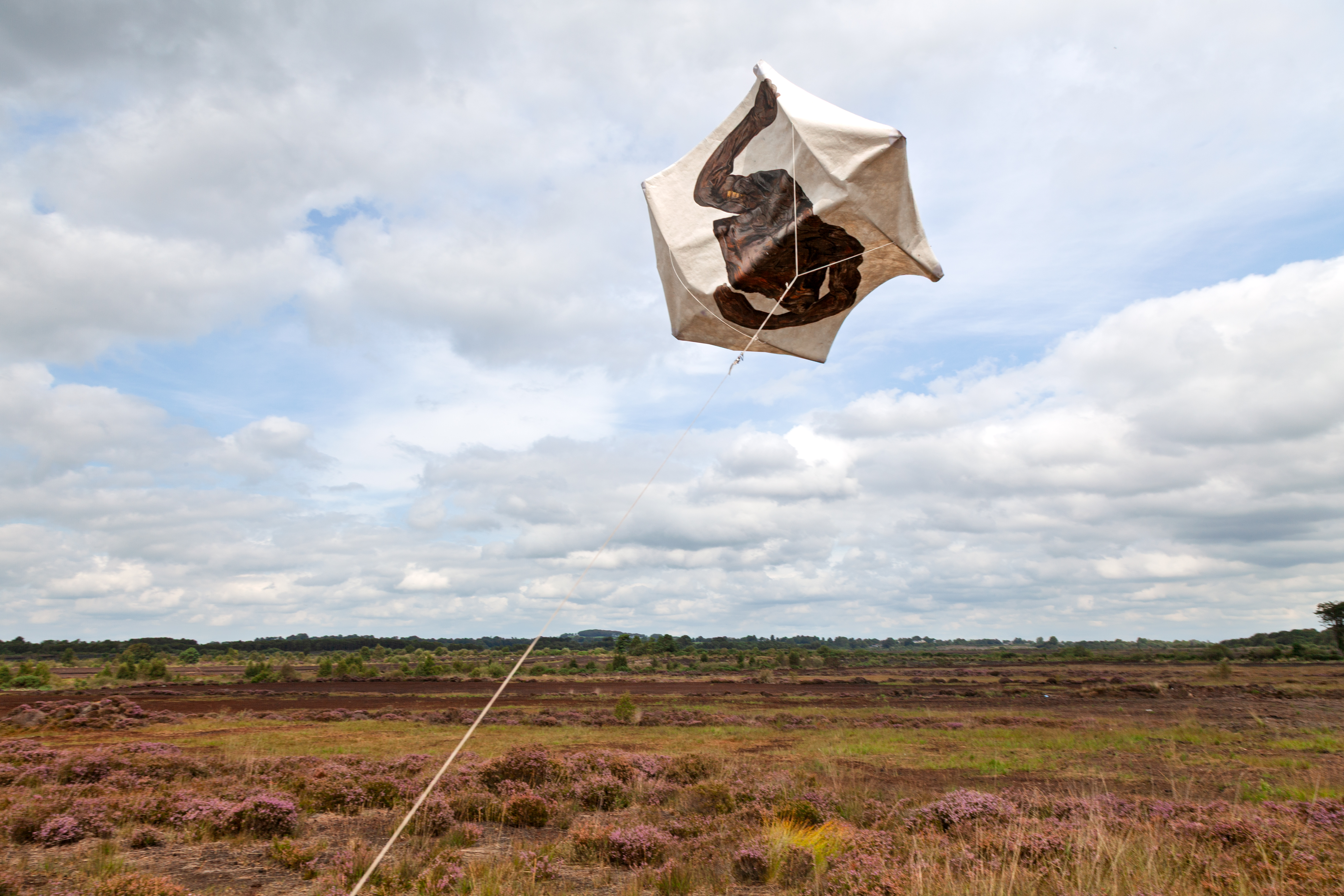
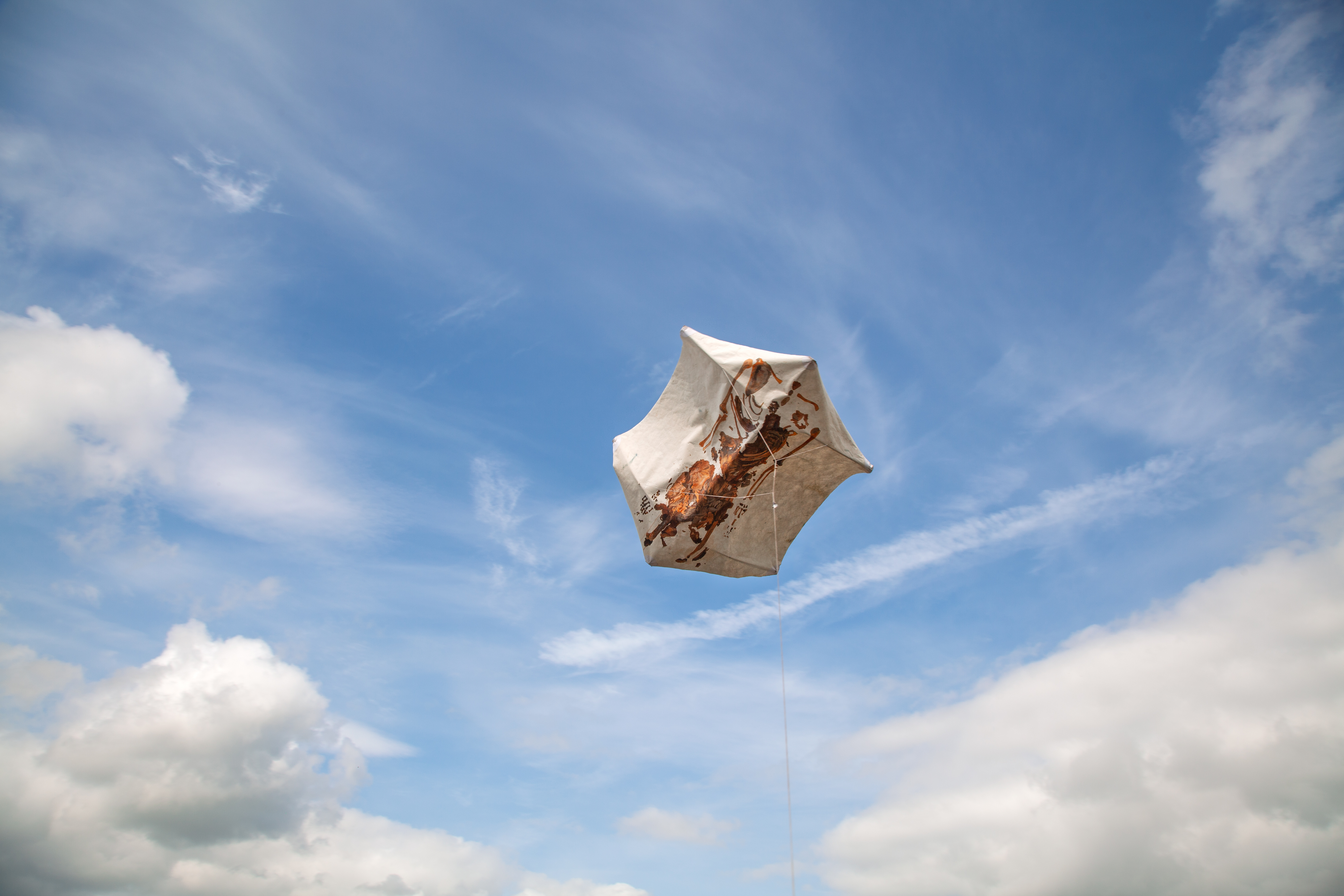
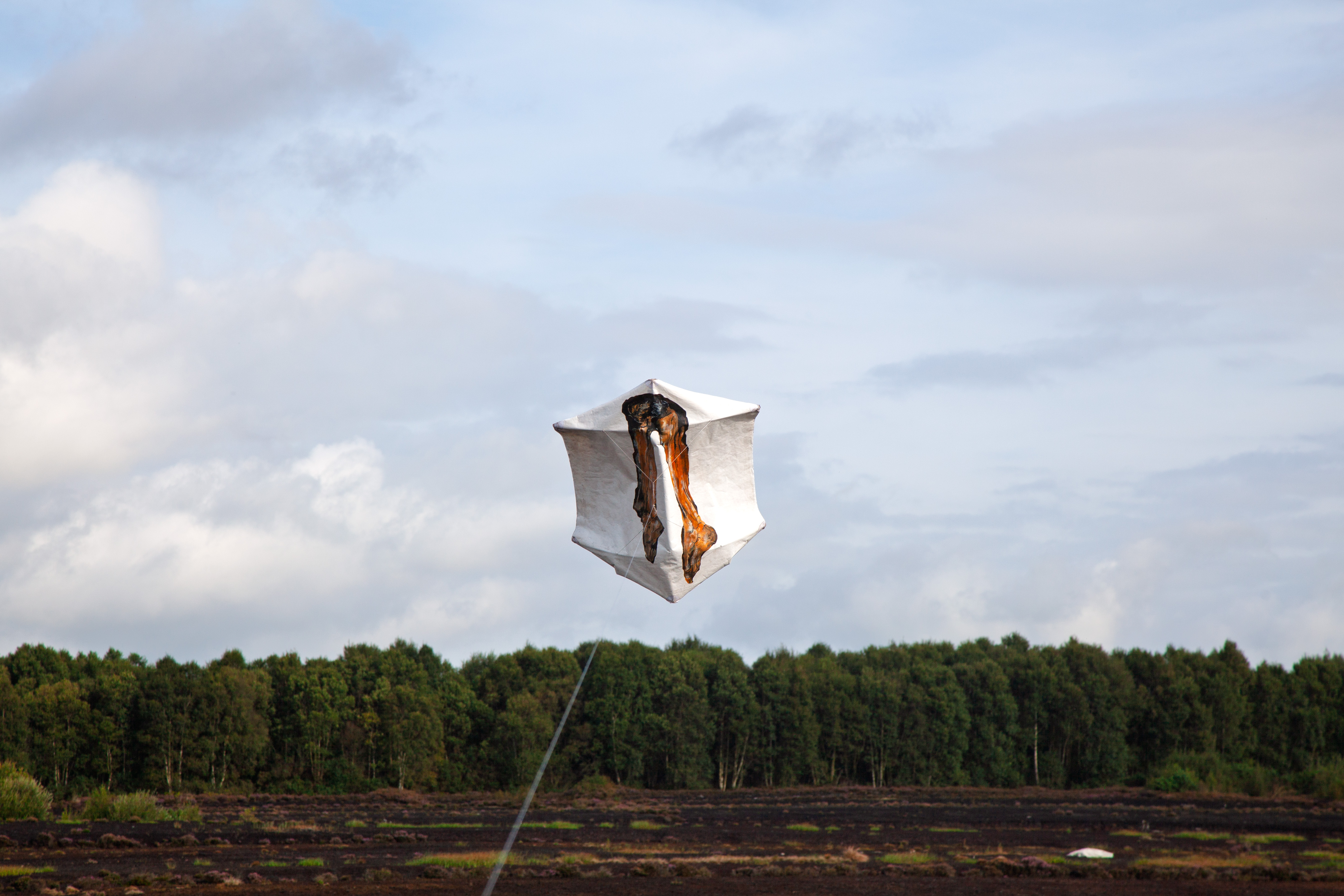
Archaeological paintings on the kites:
#1: Tumbeagh Bog Body (Pair of legs), Tumbeagh Bog, Lemanaghan, Co. Offaly, 2nd century BCE
#2: The Shinrone Gown (Woolen dress), Cangort Bog, Co. Offaly, 16th/17th century CE
#3: Manuscript, Faddan More, Co. Tipperary, 8th century CE
#4: Hair plait, Drumkeeragh, Co. Down, 16th century CE
#5: Woollen outfit, Killery Bog, Co. Sligo, 17th century CE
#6: Gallagh Man (Bog Body), Castleblakeney, Co. Galway, 3rd century BCE
#7: Suit, Kilcommon Bog, Thurles, Co. Tipperary, 17th century CE
#8: Leather shoe, Killaghintober Bog, Lemanaghan, Co. Offaly, 13th century CE
#9: Clonycavan Man (Bog Body), Clonycavan bog, Ballivor, Co. Meath, 3rd century BCE
#10: Leather Shoe, Annaholty Bog, Co. Tipperary, 11th century BCE
#11: Meenybraddan Woman (Bog Body), Meenybradden Bog, Ardara, Co. Donegal, 1100 CE
#12: Old Croghan Man (Bog Body), Croghan Hill, Daingean, Co. Offaly, 3rd century BCE
#13: Cashel Man (Bog Body), Cashel bog, Co. Laois, 20th century BCE
#14: Bellaghy Woman (Bog Body), Co. Londonderry, 5th century BCE
#15: The Dungiven Costume, Flanders Townland bog, Co. Londonderry, 16th century CE
08. Bog Guardians (2025)
Location: Lemanaghan Bog, Offaly, Ireland
Kite flying, painting, photography, performative intervention
15 kites, (tyvek, flying line, spars, acrylic pain, 15 x 120 x 105cm)
Team: Deep Time Agency in collaboration with Ben Gearey (UCC), Aoife Phelan (Lemanaghan Bog Heritage and Conservation group, IPeAAT (Irish Peatland Archaeology Across Time) in collaboration with UCC and the National Heritage Week in Ireland.
Thanks to archaeologist Ben Gearey of the UCC and to the members of the Lemanaghan Heritage and Conservation Group.
Generously funded by Iona Stichting & UCC
Bog Guardians reacts to the building of a planned wind farm in a bog landscape, resulting in considerable protest from local heritage and wildlife conservation groups.
The industrial development, currently in the pre-planning stage, is executed by the former peat extraction company Bord na Móna (BnM). The company has rebranded itself as a renewable energy provider, building wind turbines and solar farms on its former peat excavation sites. For Lemanaghan, they envision the installation of 15 wind turbines total, each with a height of up to 220 meters, sufficient to power approximately 55,000 Irish homes annually.
Location: Lemanaghan Bog, Offaly, Ireland
Kite flying, painting, photography, performative intervention
15 kites, (tyvek, flying line, spars, acrylic pain, 15 x 120 x 105cm)
Team: Deep Time Agency in collaboration with Ben Gearey (UCC), Aoife Phelan (Lemanaghan Bog Heritage and Conservation group, IPeAAT (Irish Peatland Archaeology Across Time) in collaboration with UCC and the National Heritage Week in Ireland.
Thanks to archaeologist Ben Gearey of the UCC and to the members of the Lemanaghan Heritage and Conservation Group.
Generously funded by Iona Stichting & UCC
Bog Guardians reacts to the building of a planned wind farm in a bog landscape, resulting in considerable protest from local heritage and wildlife conservation groups.
The industrial development, currently in the pre-planning stage, is executed by the former peat extraction company Bord na Móna (BnM). The company has rebranded itself as a renewable energy provider, building wind turbines and solar farms on its former peat excavation sites. For Lemanaghan, they envision the installation of 15 wind turbines total, each with a height of up to 220 meters, sufficient to power approximately 55,000 Irish homes annually.





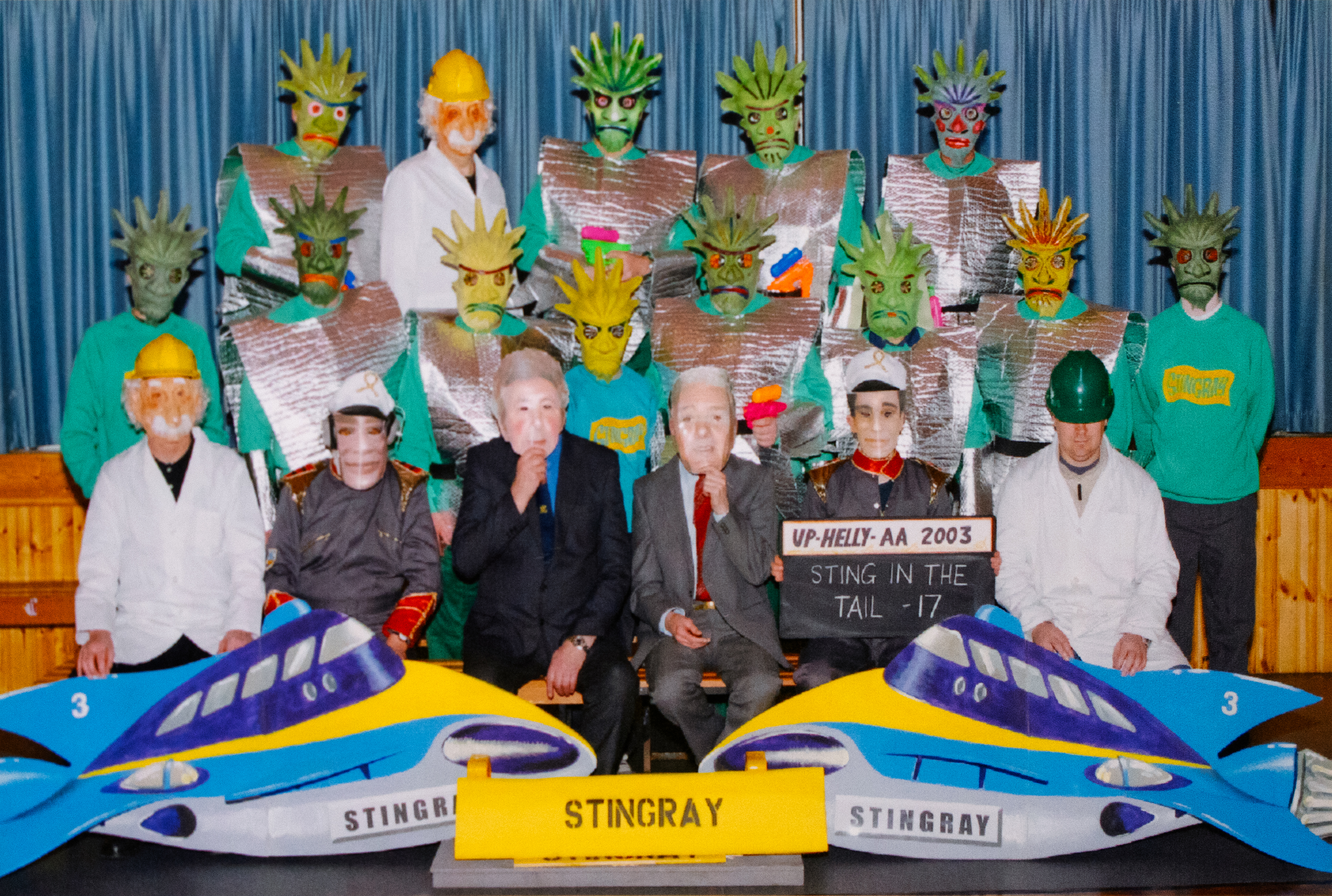
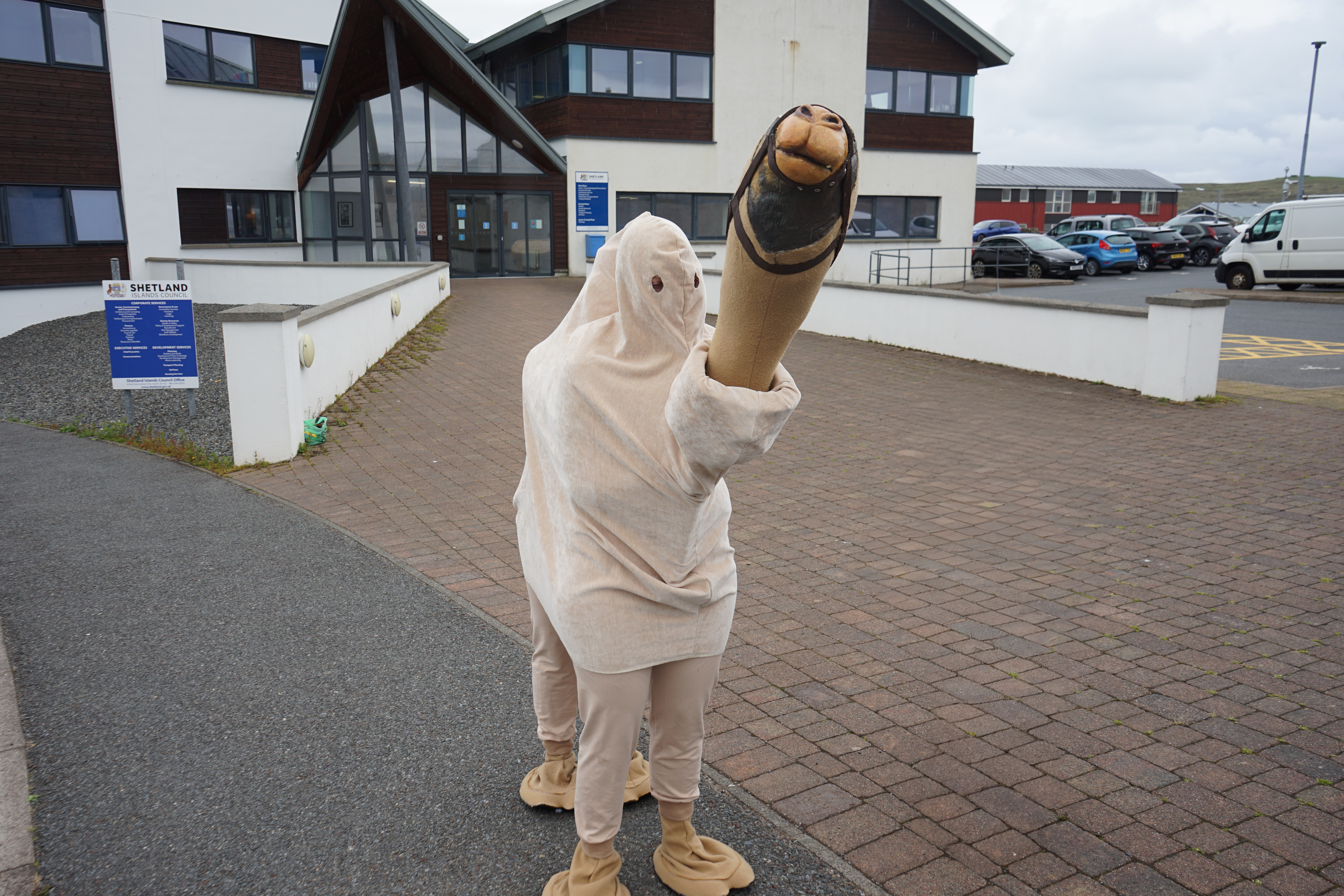
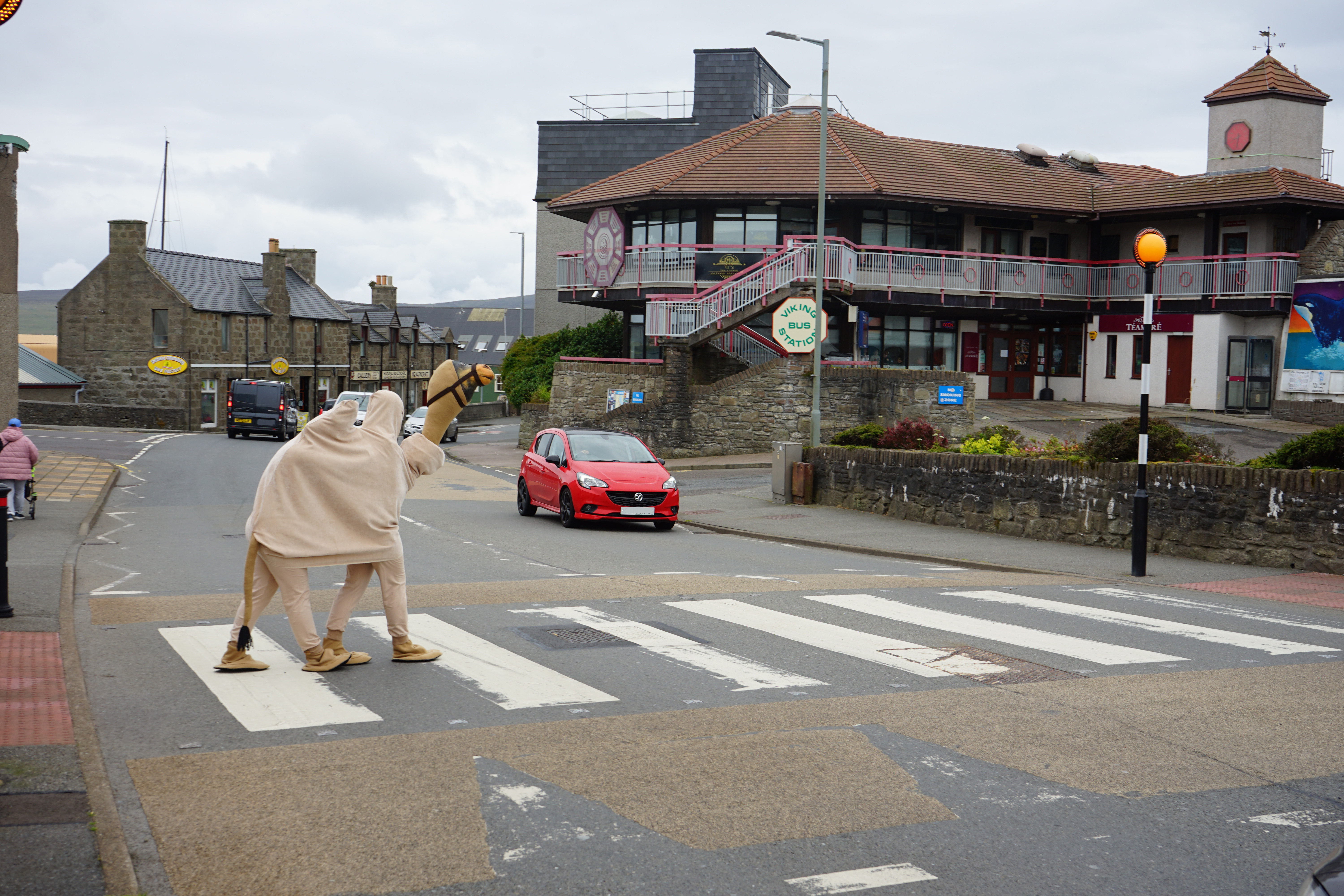


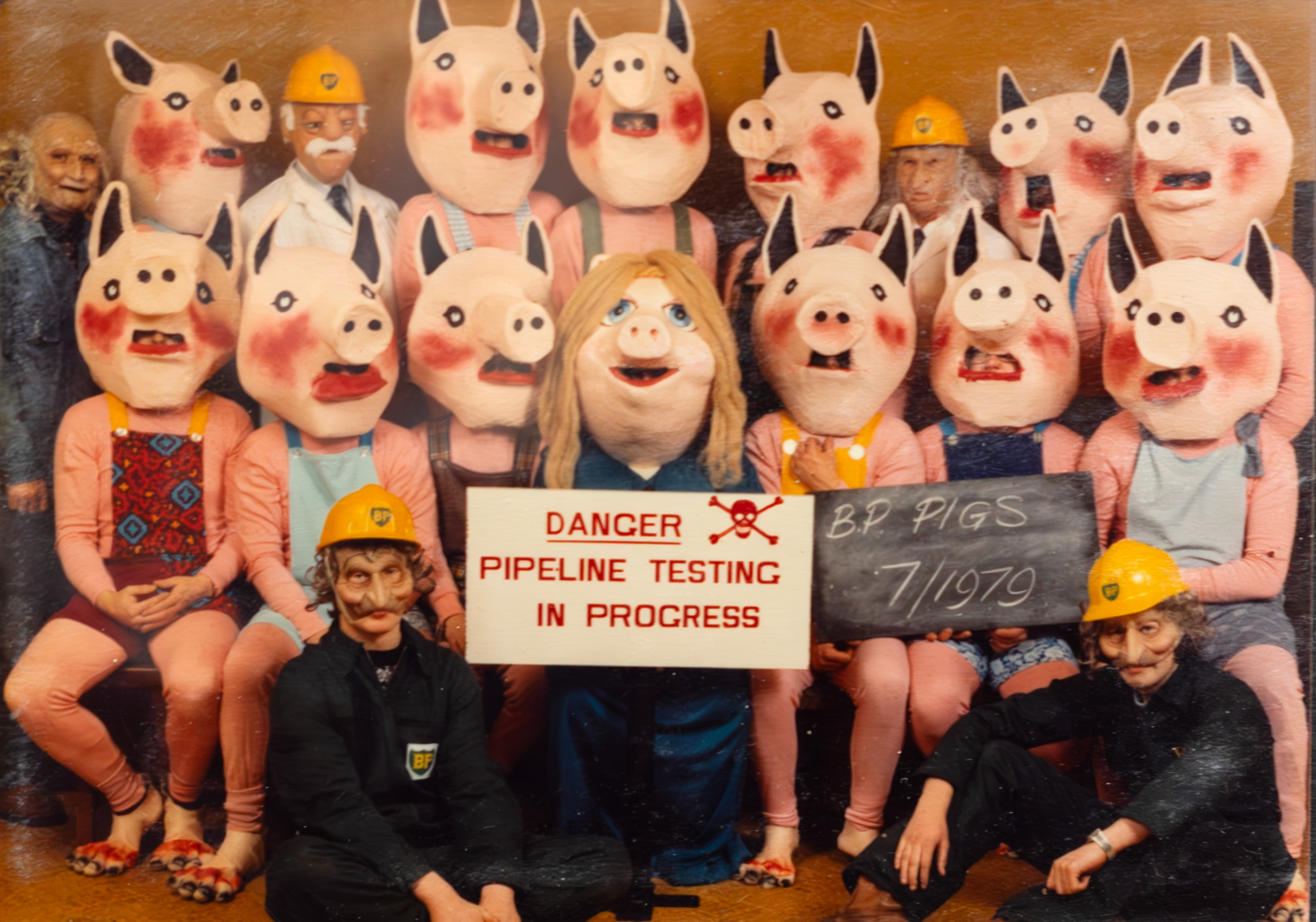


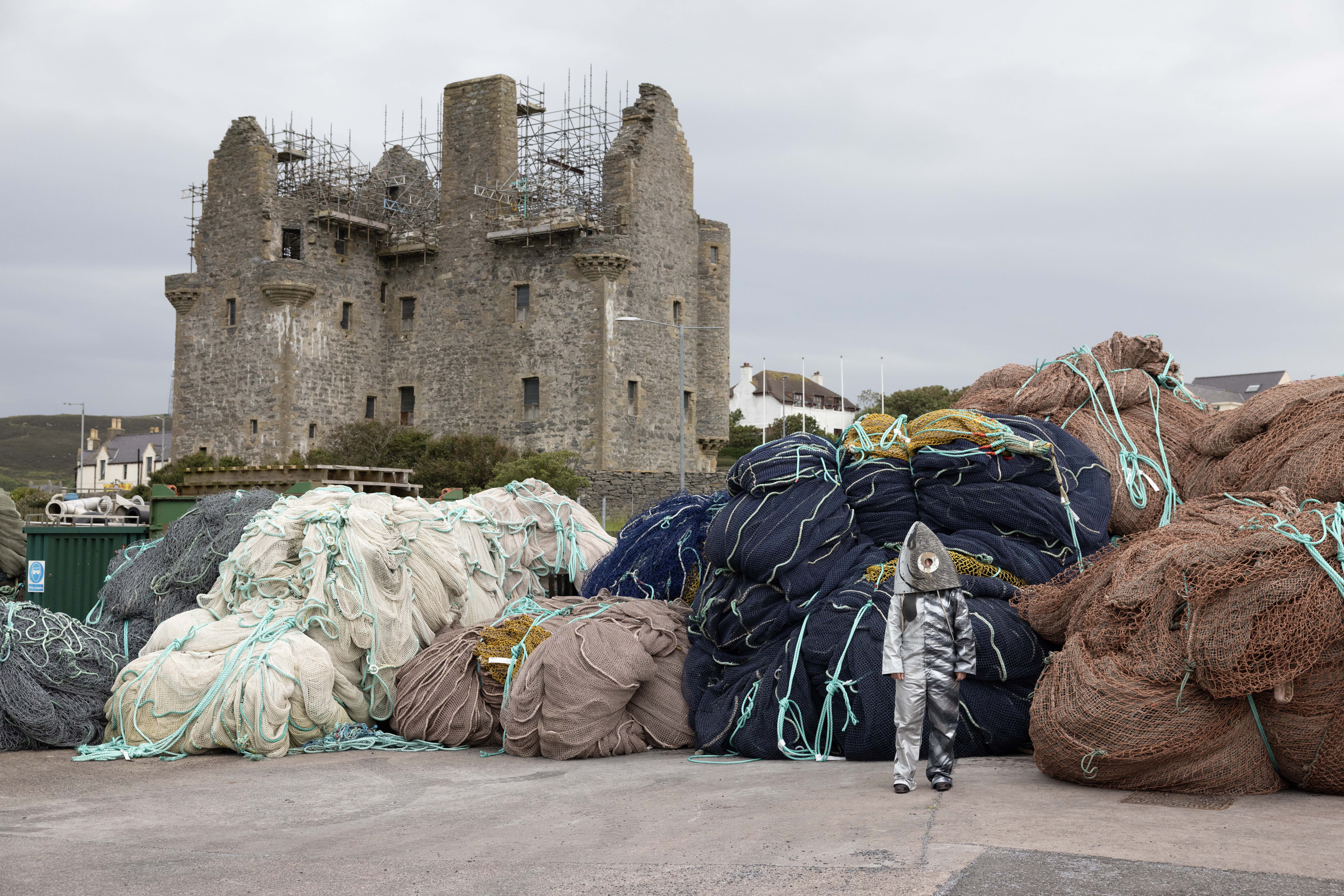
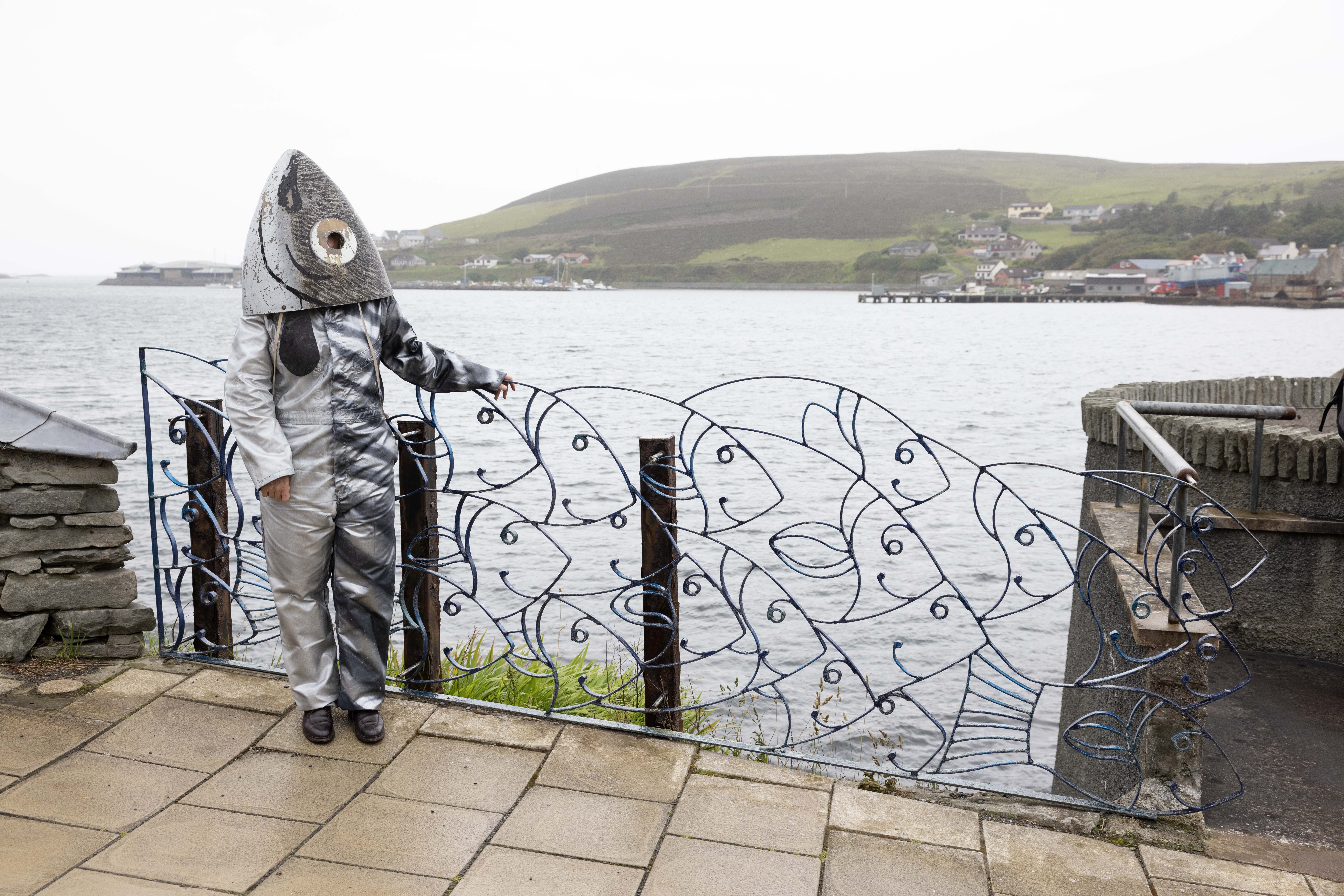


Energy Acts reenacted:
1) Small Fry in Oil (1973)
2) Ness Monstrosities (1976)
3) Shel(l)ties (1978)
4) BP Pigs (1979)
5) Da Freefield Arabs (1983)
6) WINDerful Lights (1983)
7) Dales Voe Raiders (1984)
8) Sting in the Tail (2004)
07. The Moving Energy Theatre (2025)
Location: The Shetland Islands, Scotland, United Kingdom
Performative intervention, costume-making, photography, publication (forthcoming)
Team: Deep Time Agency & Anna Tudos, Marcus Nicolson (assistance), John Coutts (photography), Daniel Shailer (reporting & interviewing)
Thanks to Gaada, Shetland Museum & Archives, the Up Helly Aa Committee, Jon Pulley, Gilly Bridle & Sew Far North
Generously funded by the Mondriaan Fund
The Shetland Islands are a Scottish archipelago that lies approximately 480 kilometres north of Edinburgh and 320 kilometres west of Bergen, on the crossroads between Norway, Scotland, and the Faroe Islands. Shetland houses Sullom Voe, one of the biggest oil terminals in Europe. During peak times, up to 1.5 million barrels of oil enter the archipelago daily from the oil platforms in the North Sea to be stored in underground containers. Afterwards, they are shipped to ports worldwide. The archipelago is also a major player in wind and tidal energy.
Some of the energy industry’s traces are more visible than others for the 23,000 inhabitants living there. The ways these industries have changed island life and natural environments throughout history are often discussed, performed, and criticized by members of the Shetland community. Examples are the short theatre acts that happen in the framework of the carnivalesque Up Helly Aa festival. A handful of historical acts from between 1972 and 2003 found in the Shetland Archives and the Up Helly Aa Committee Archive reference the energy industry through a critical lens and a specific aesthetic, marked by costumes, props, songs, and so on.
In light of the opening of the new Rosebank oil field north-west of Shetland (planned to start operating in 2026), it is time again for these discourses to re-emerge. TMET uses re-enactment and performative intervention to bring back and revive 8 selected energy acts from the archives. For this purpose, costumes and props were recreated and placed back into the industrial environments the acts discussed and critiqued once, letting interactions around them unfold spontaneously. In this way, the costumes become creative tools for conversations around energy, which allow for contemporary discussion about what roles these industries play in the Shetlanders’ lives today.